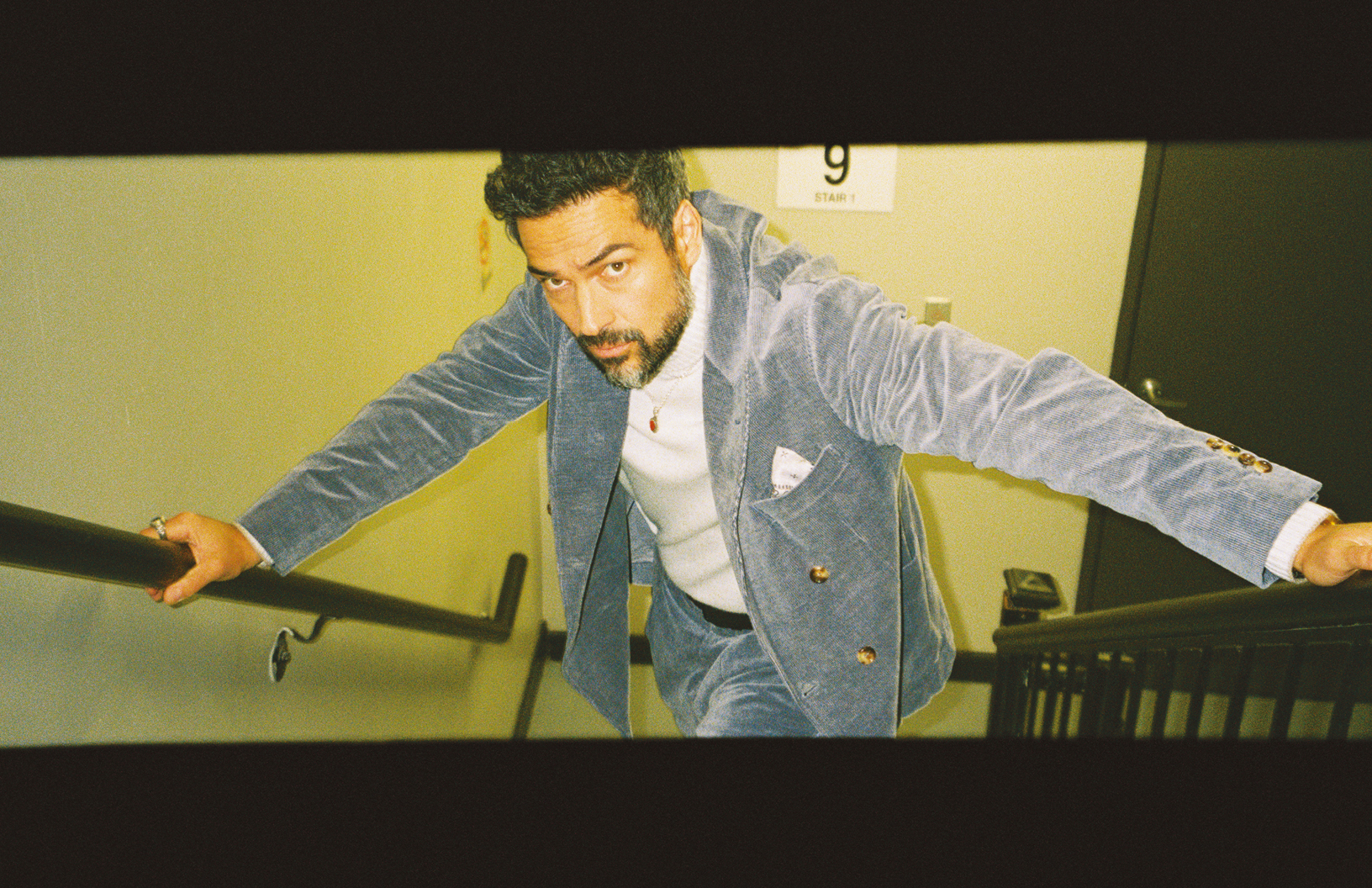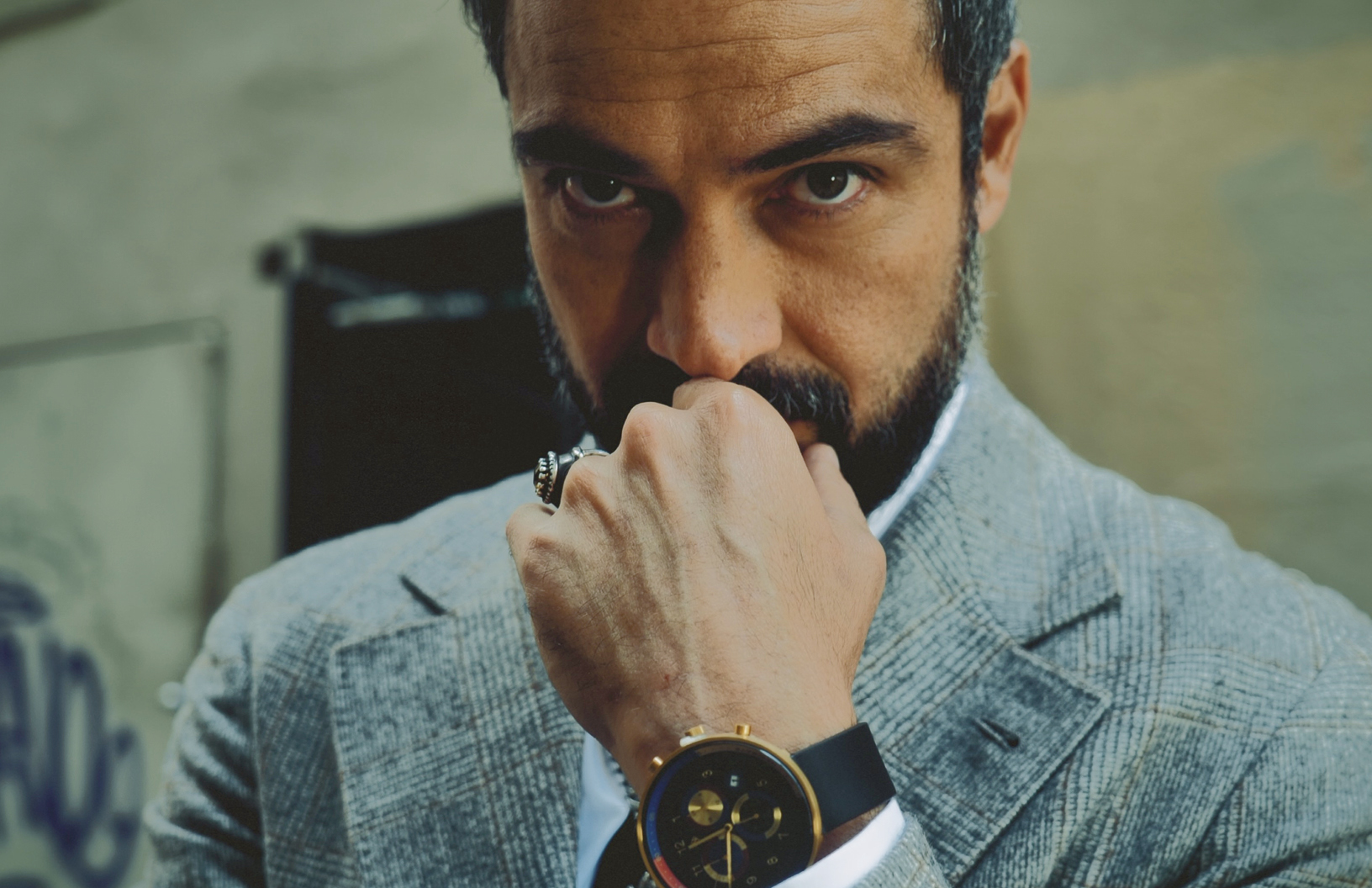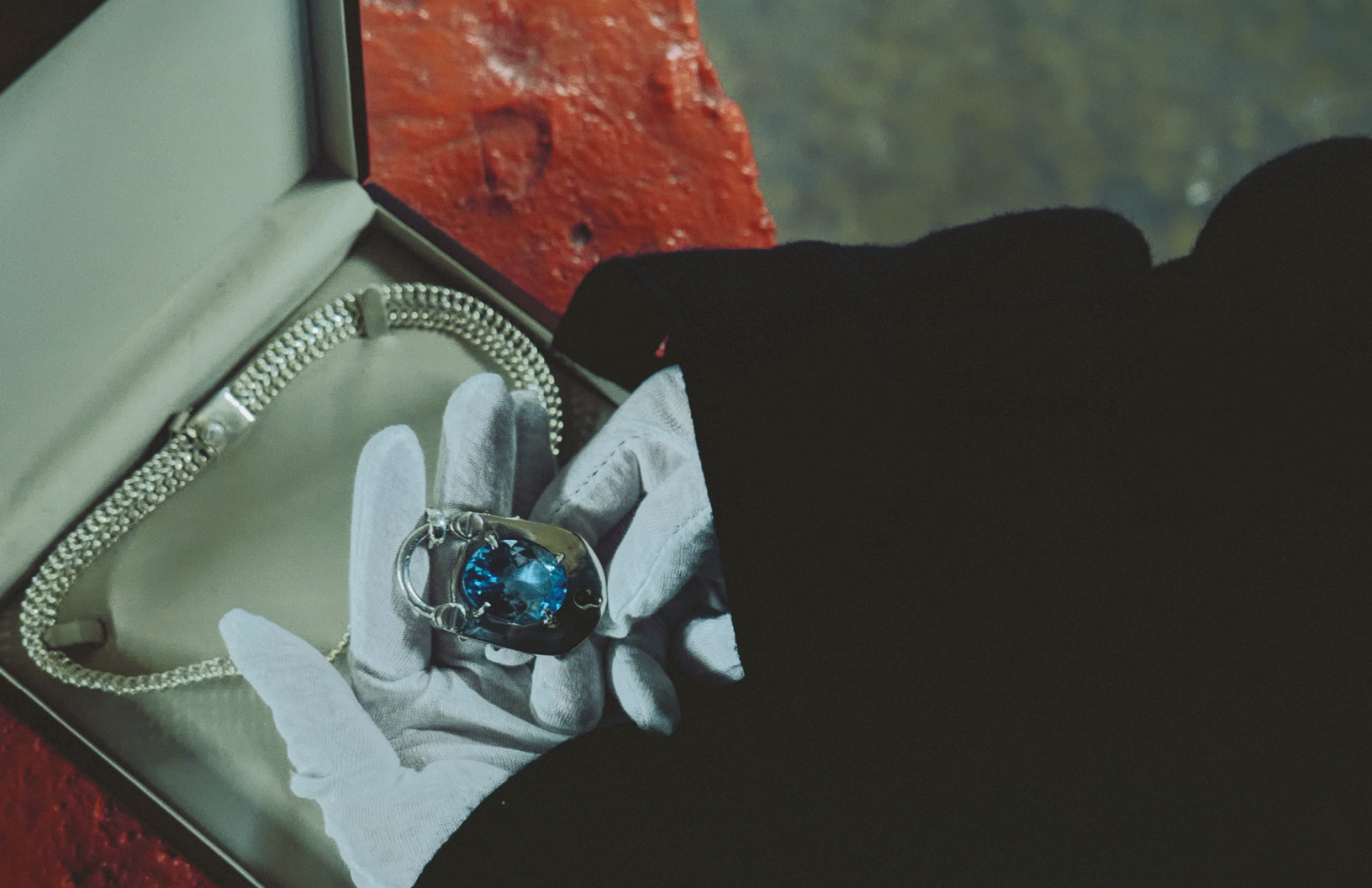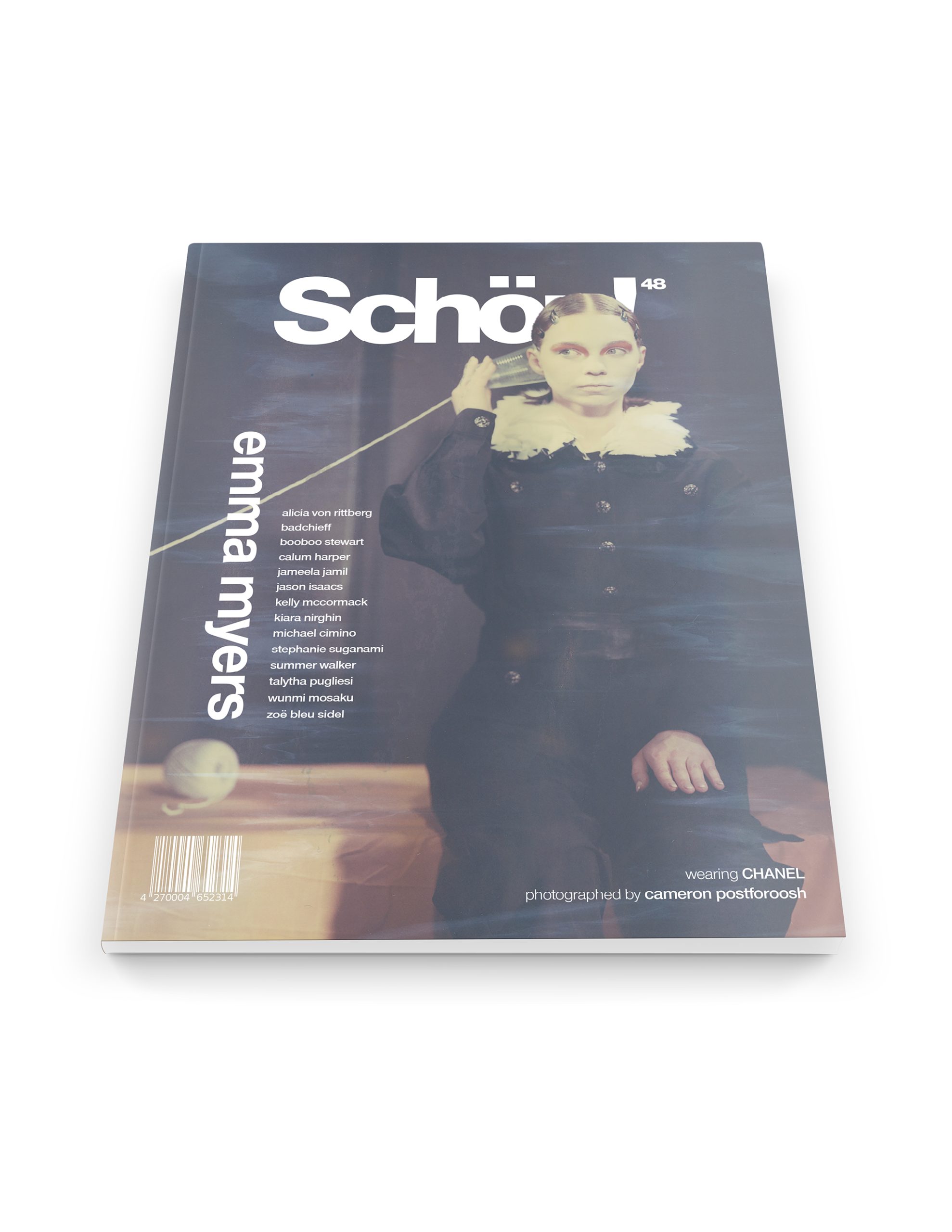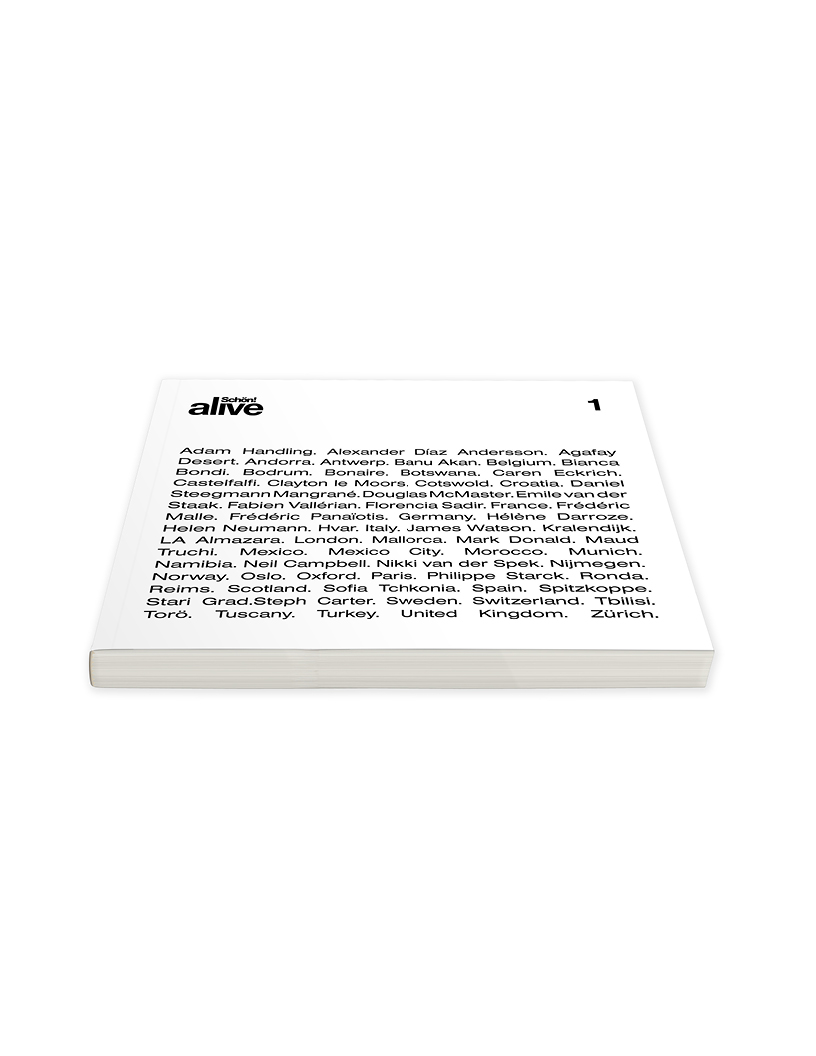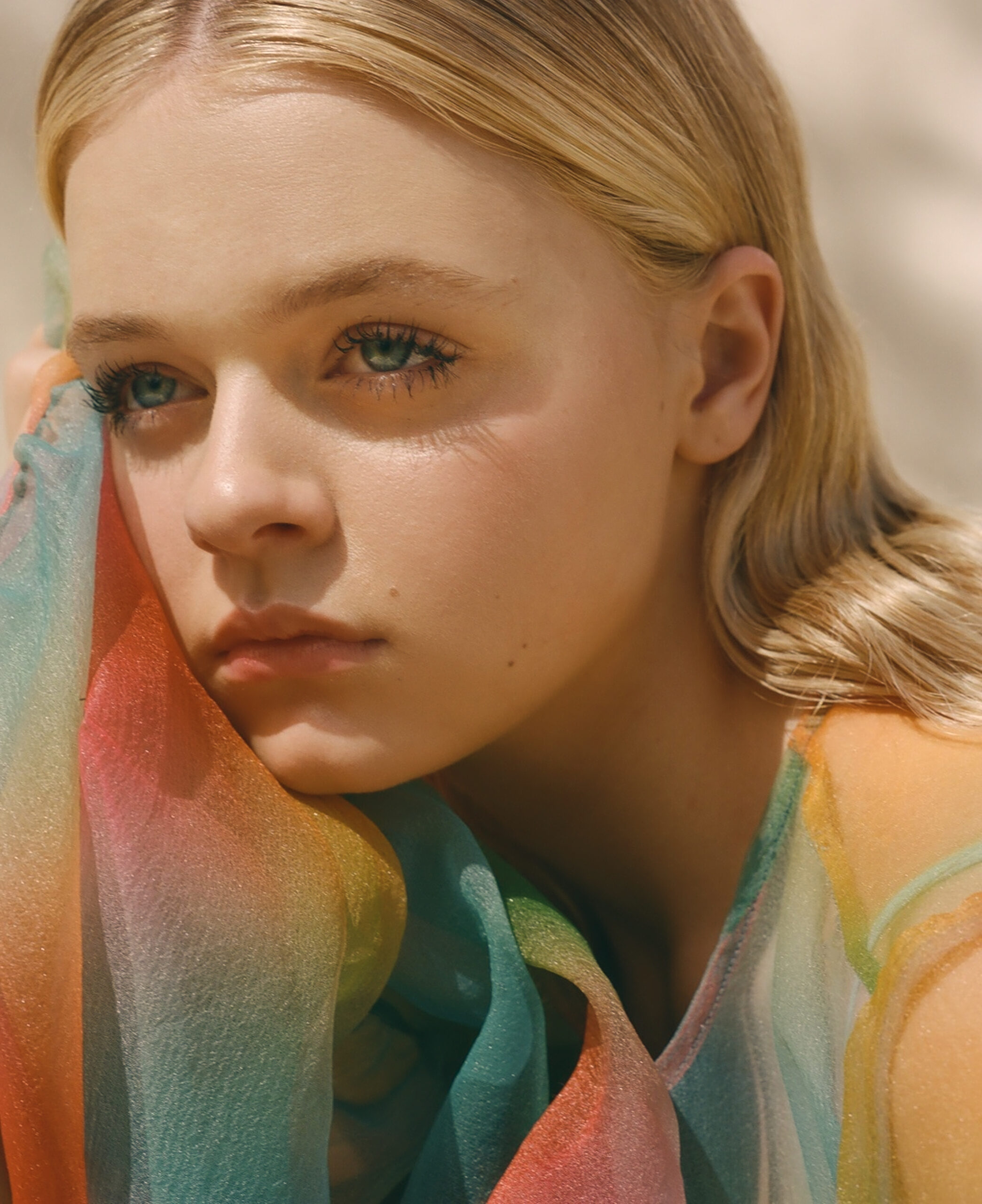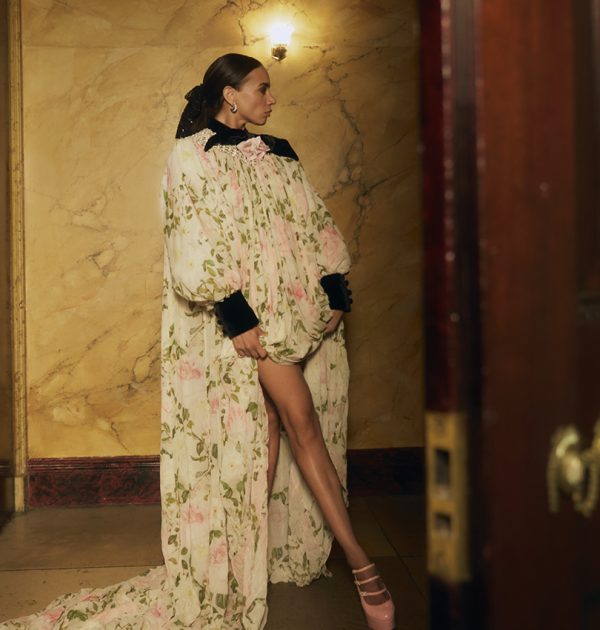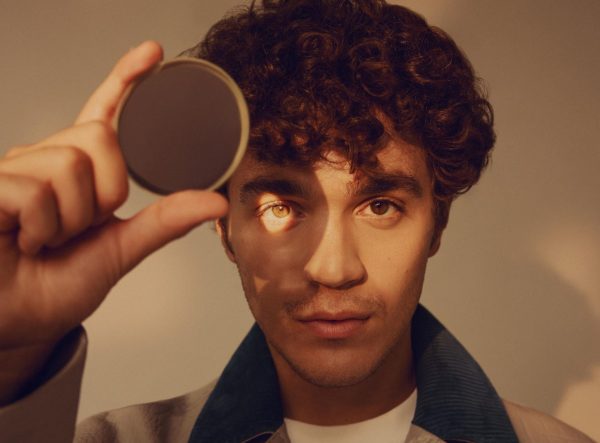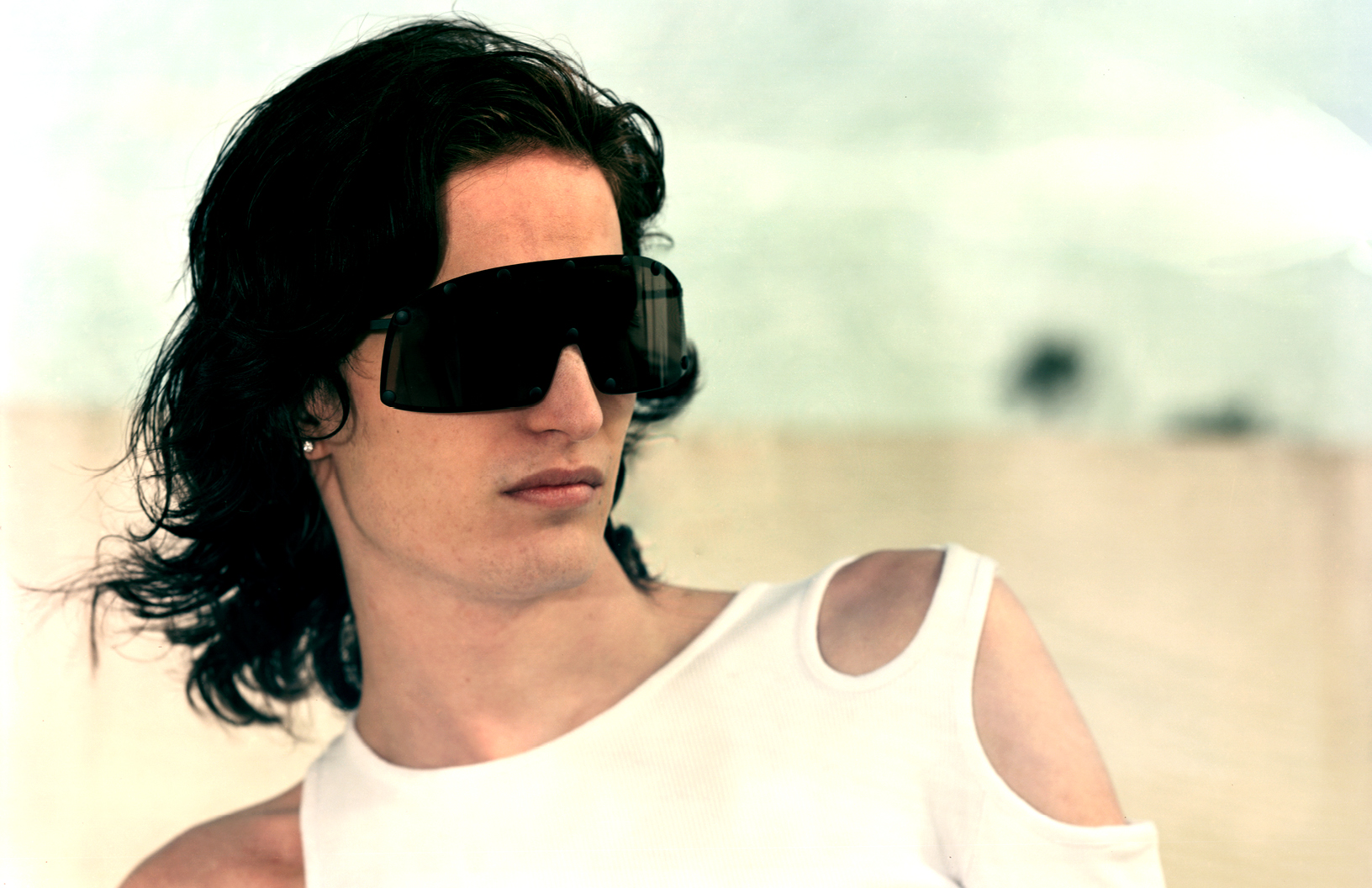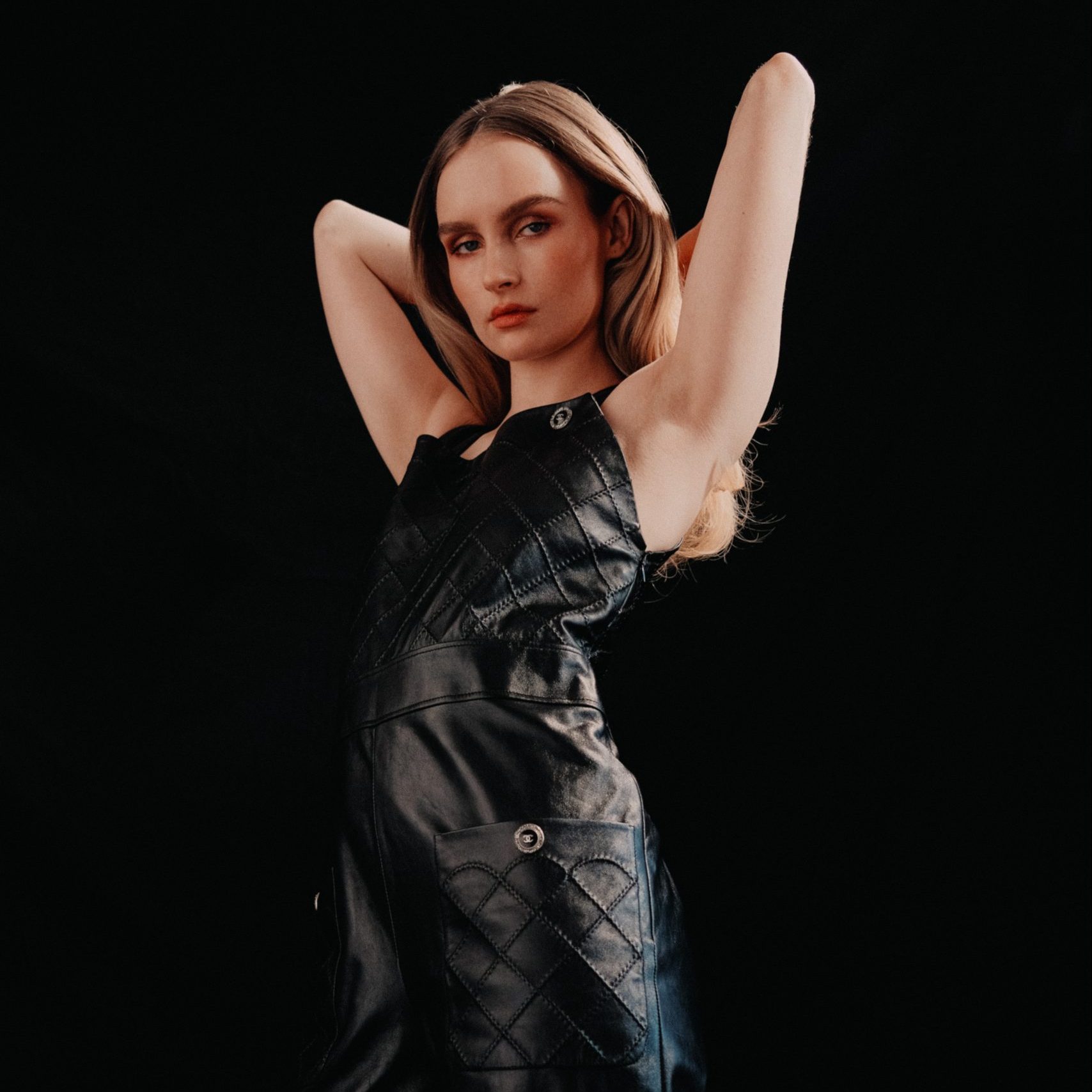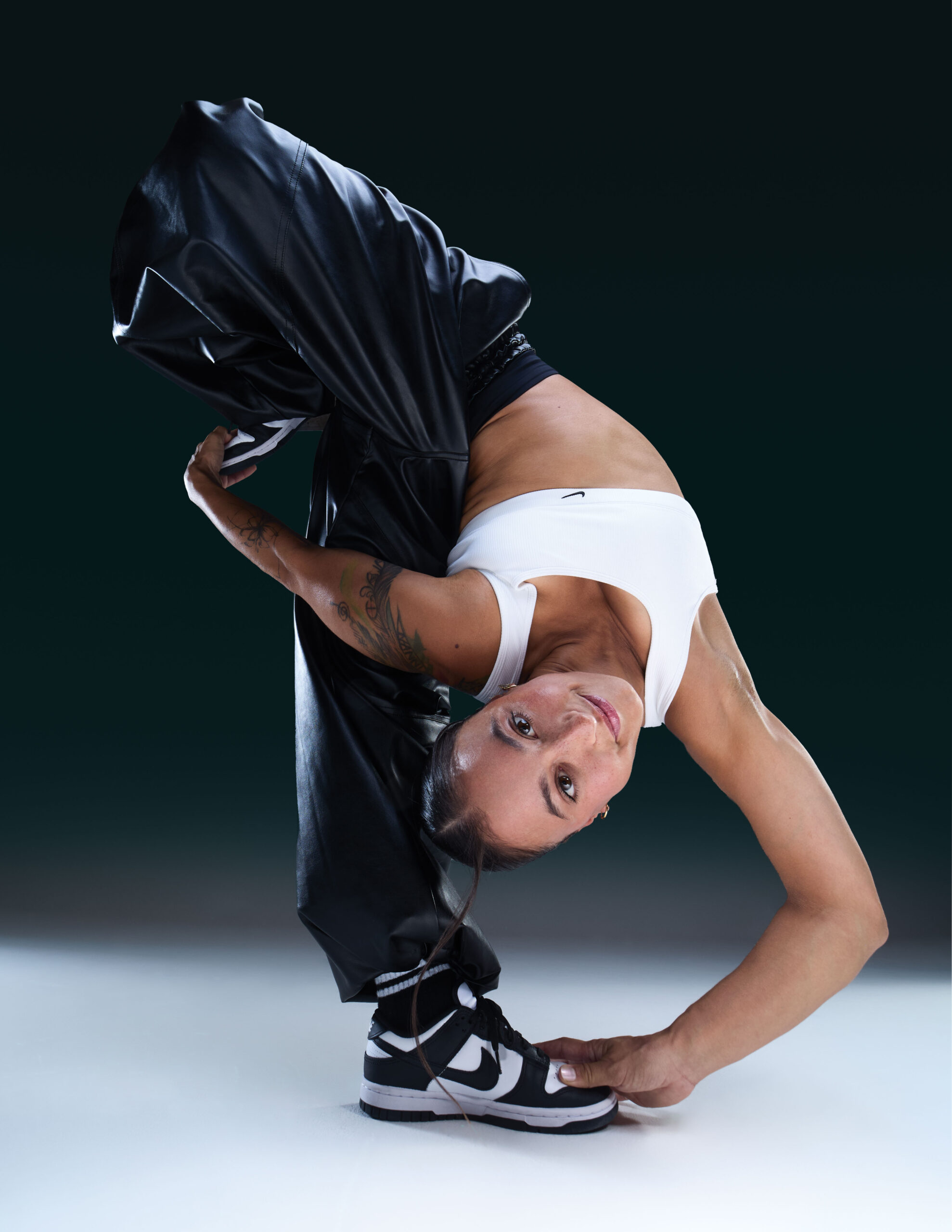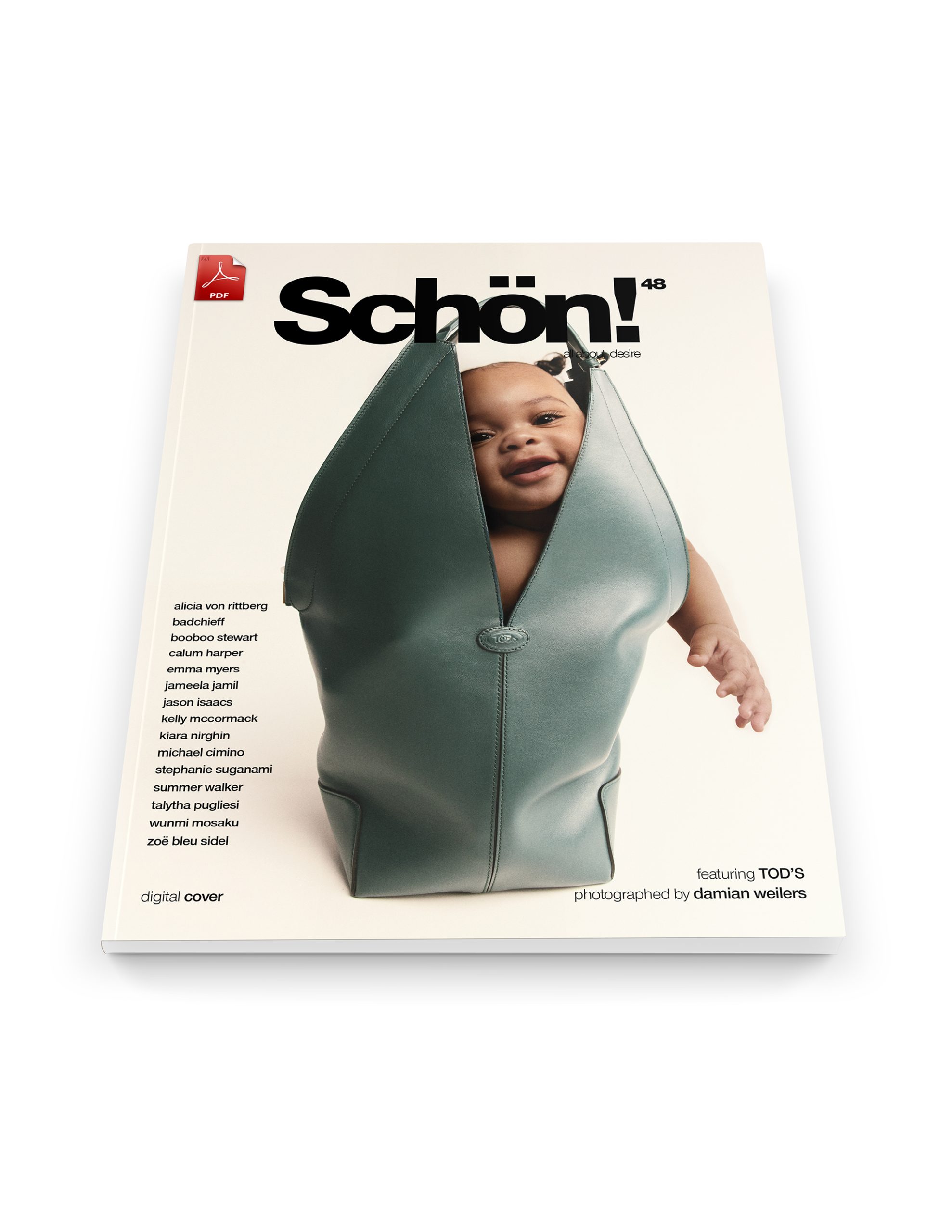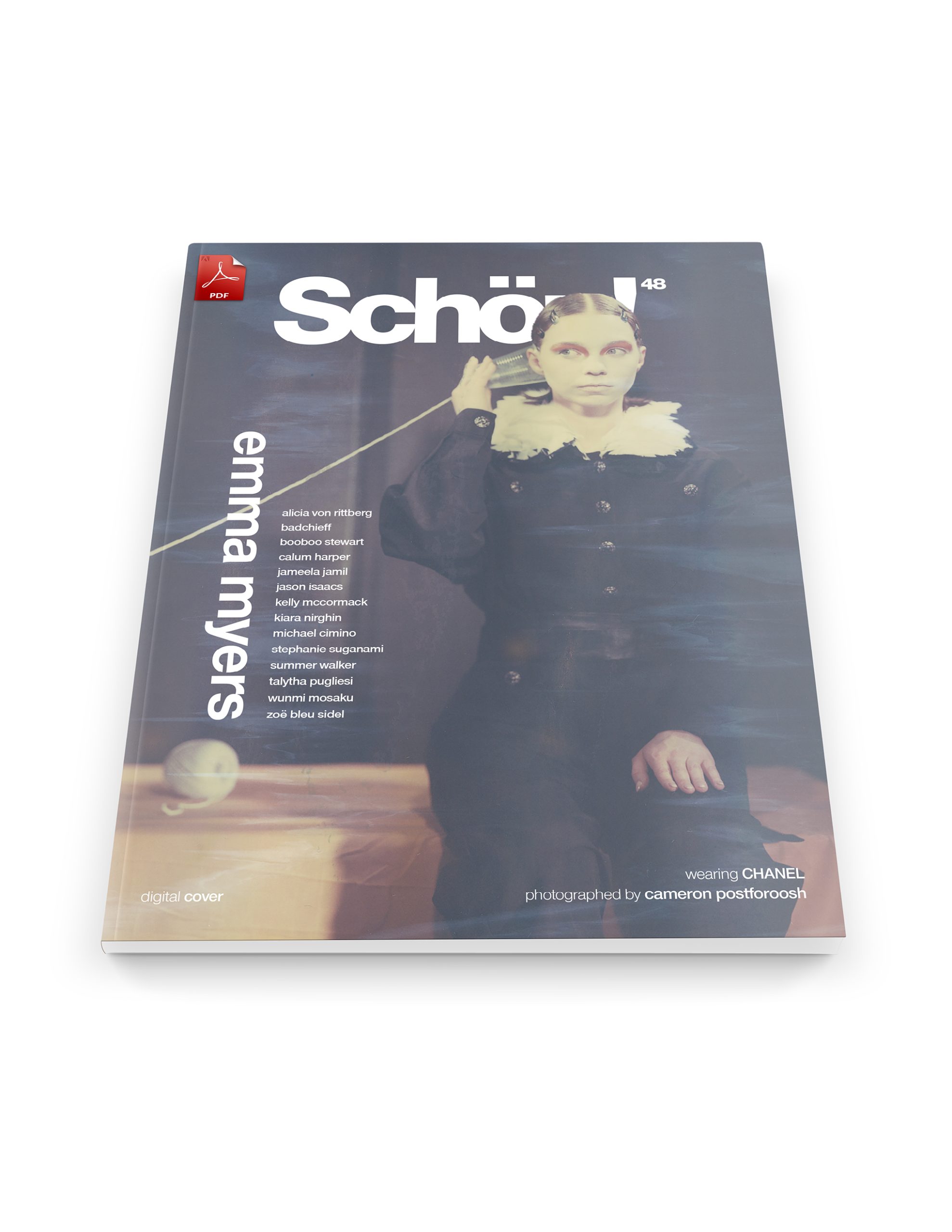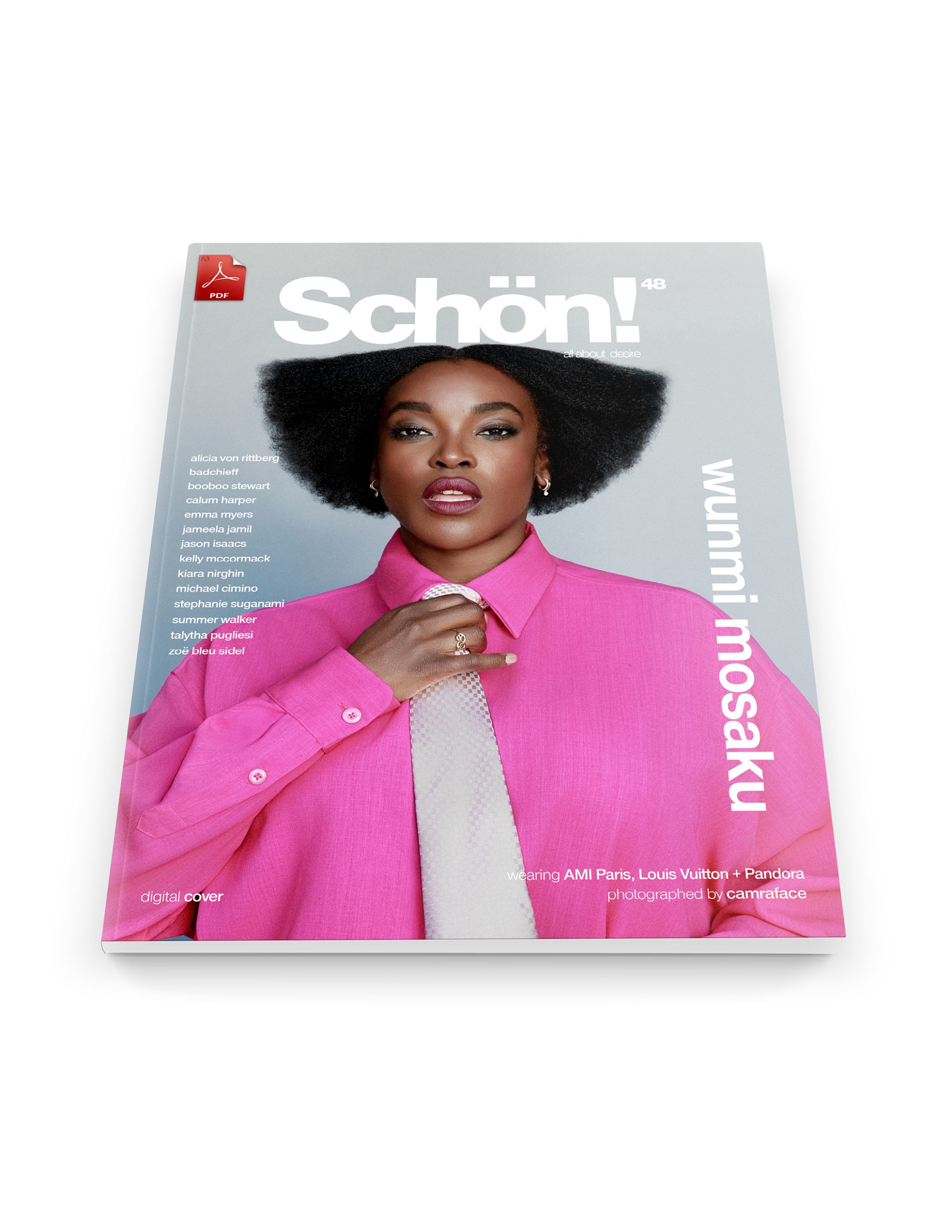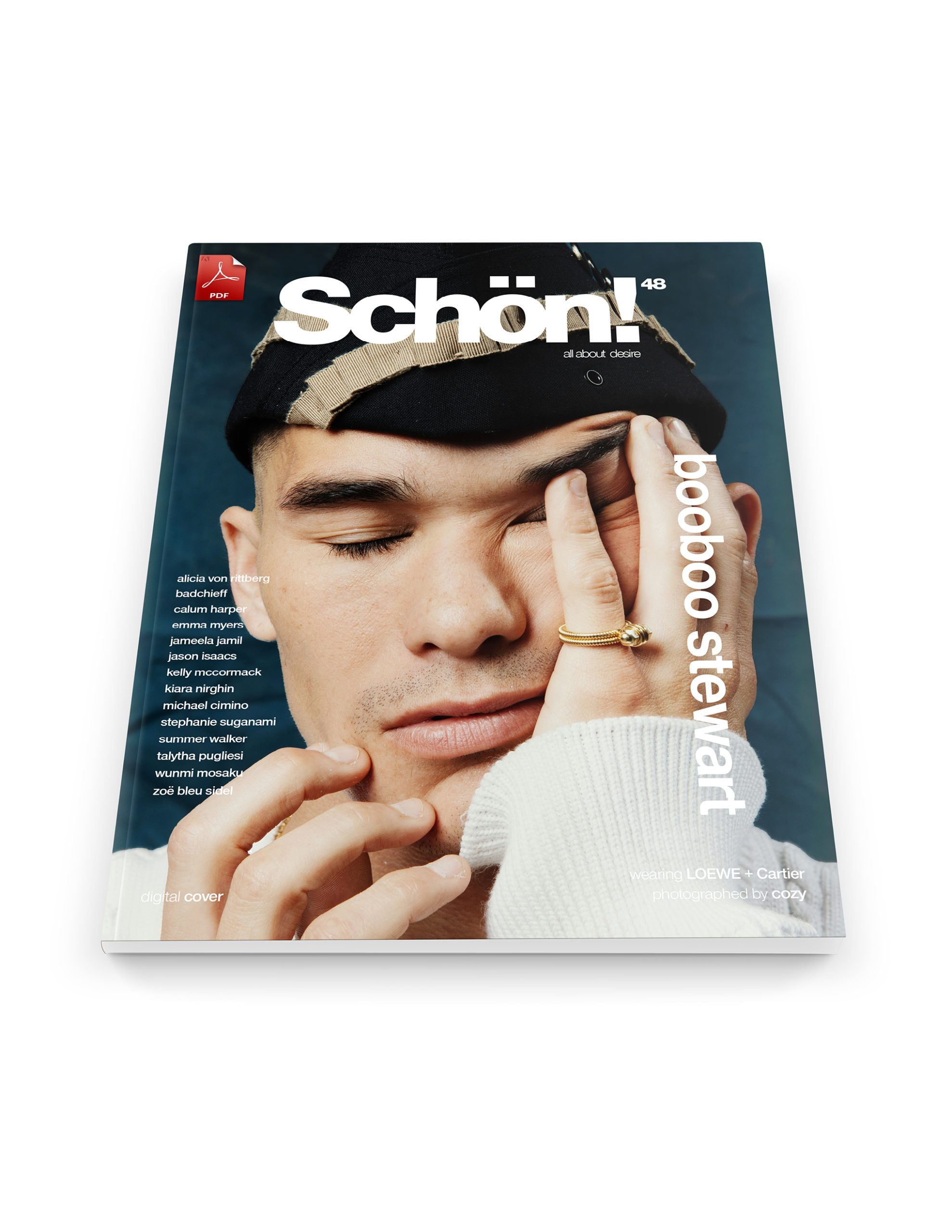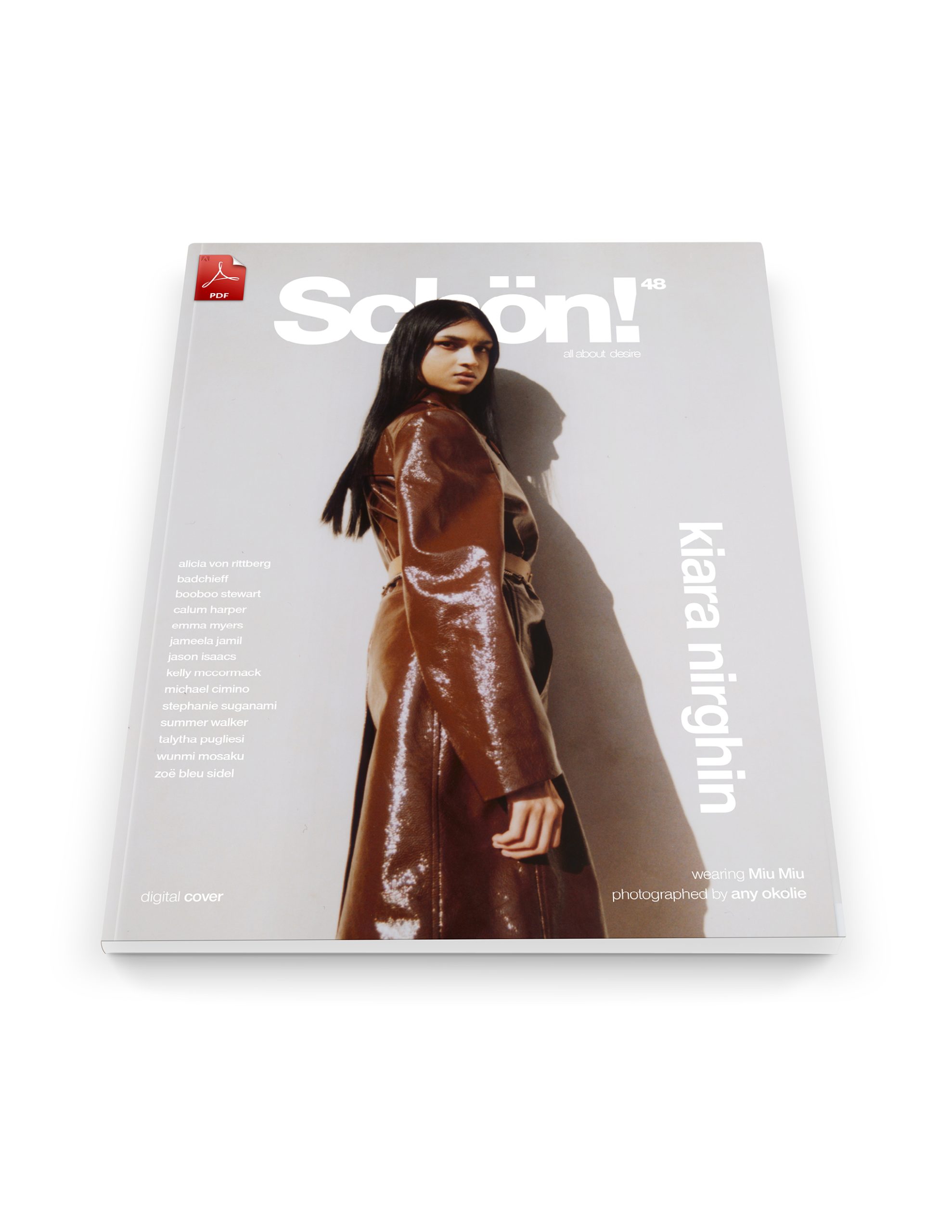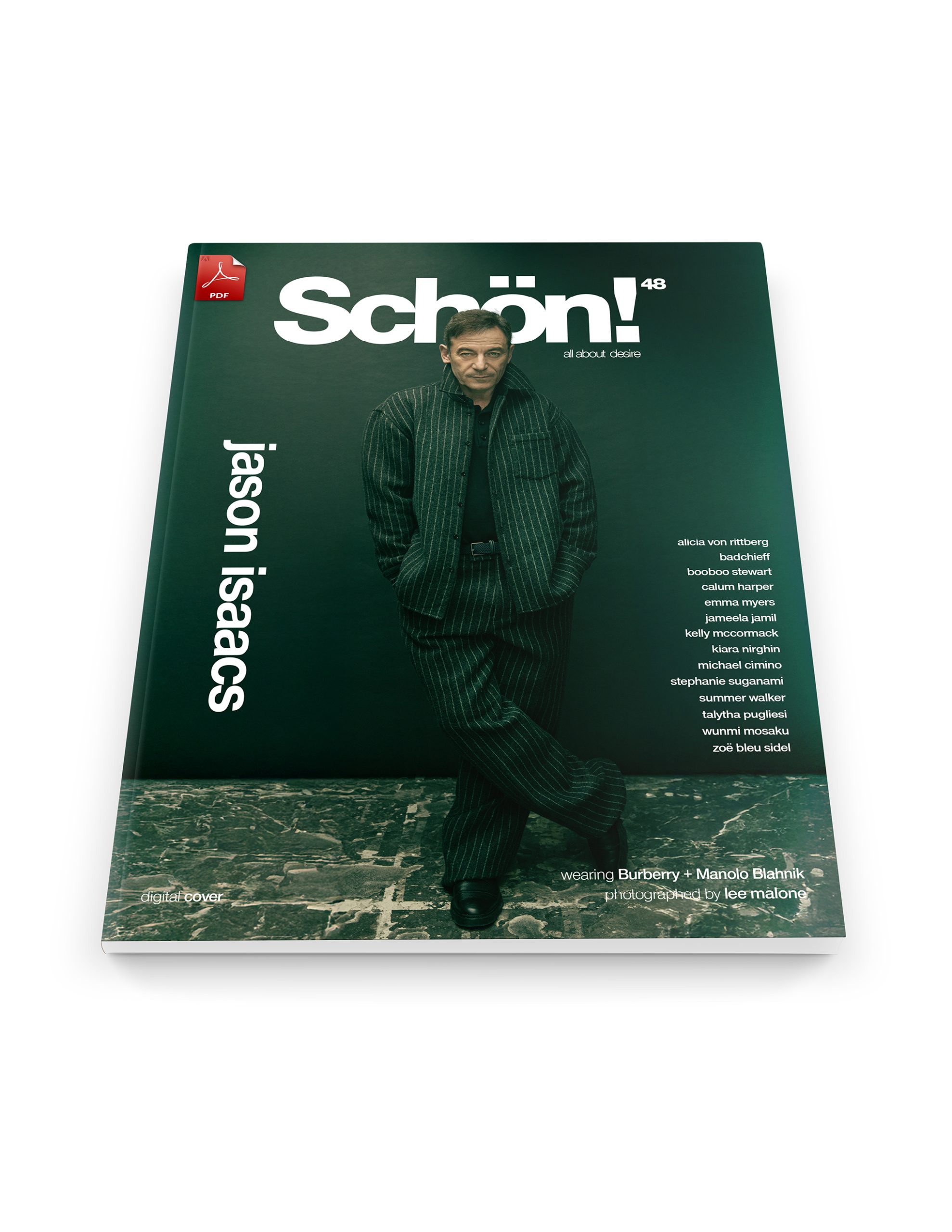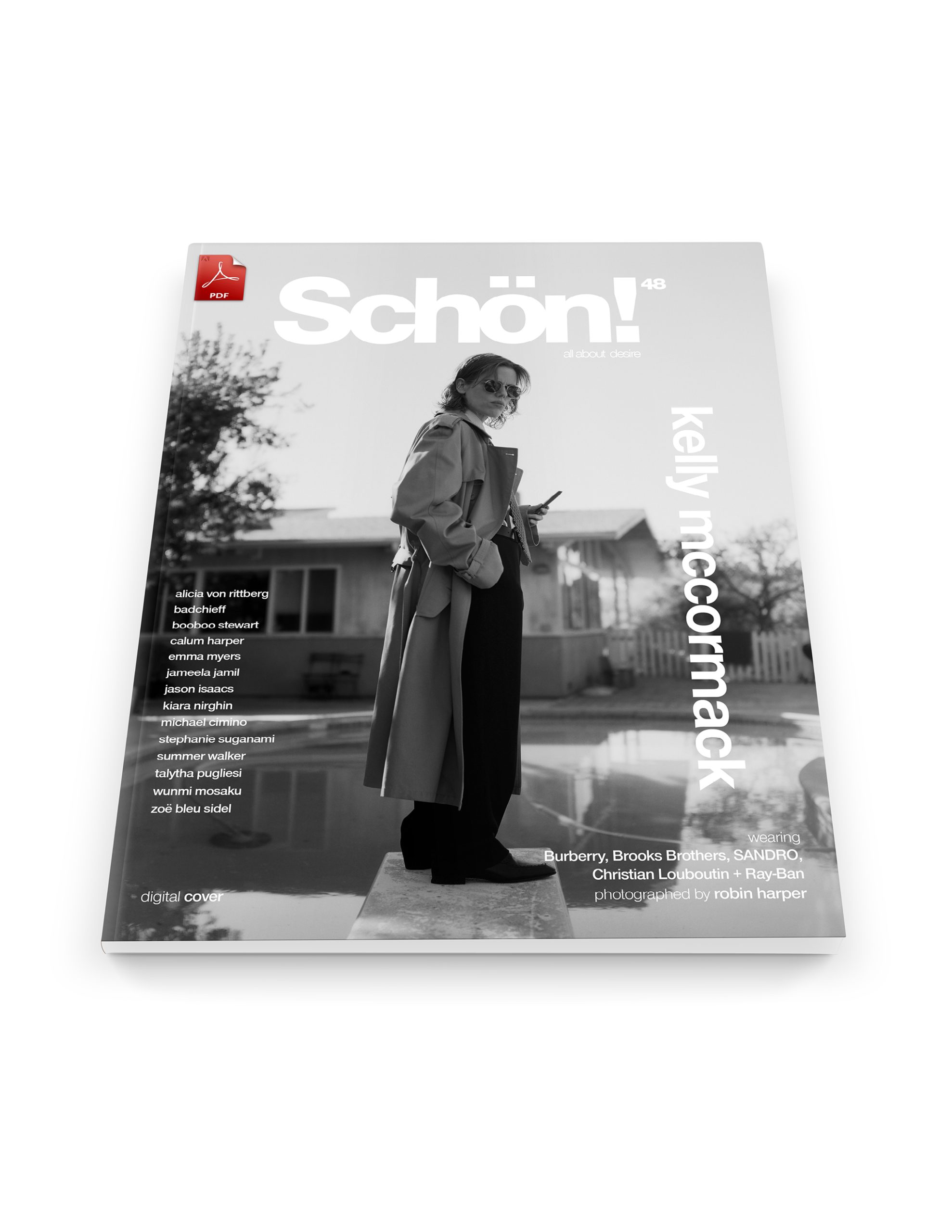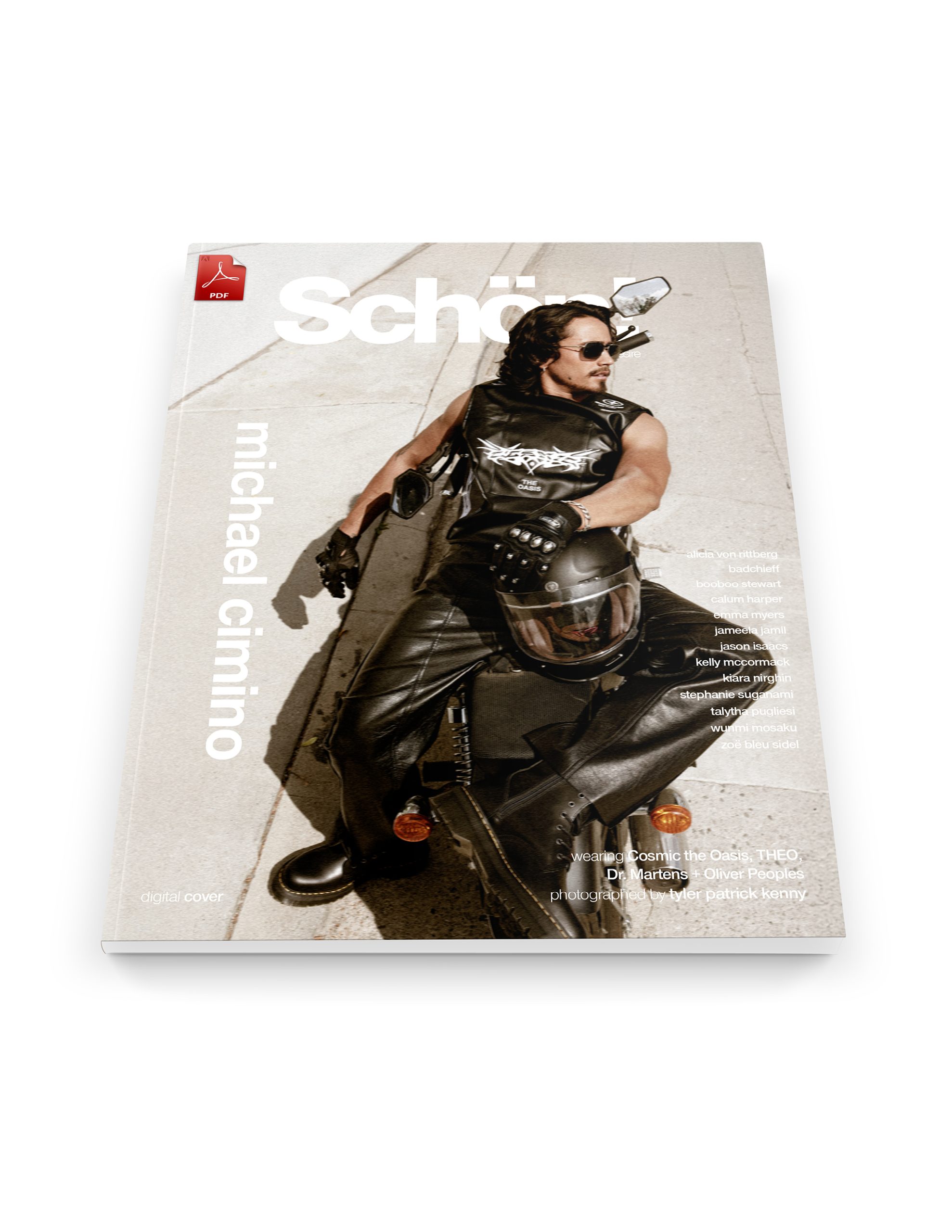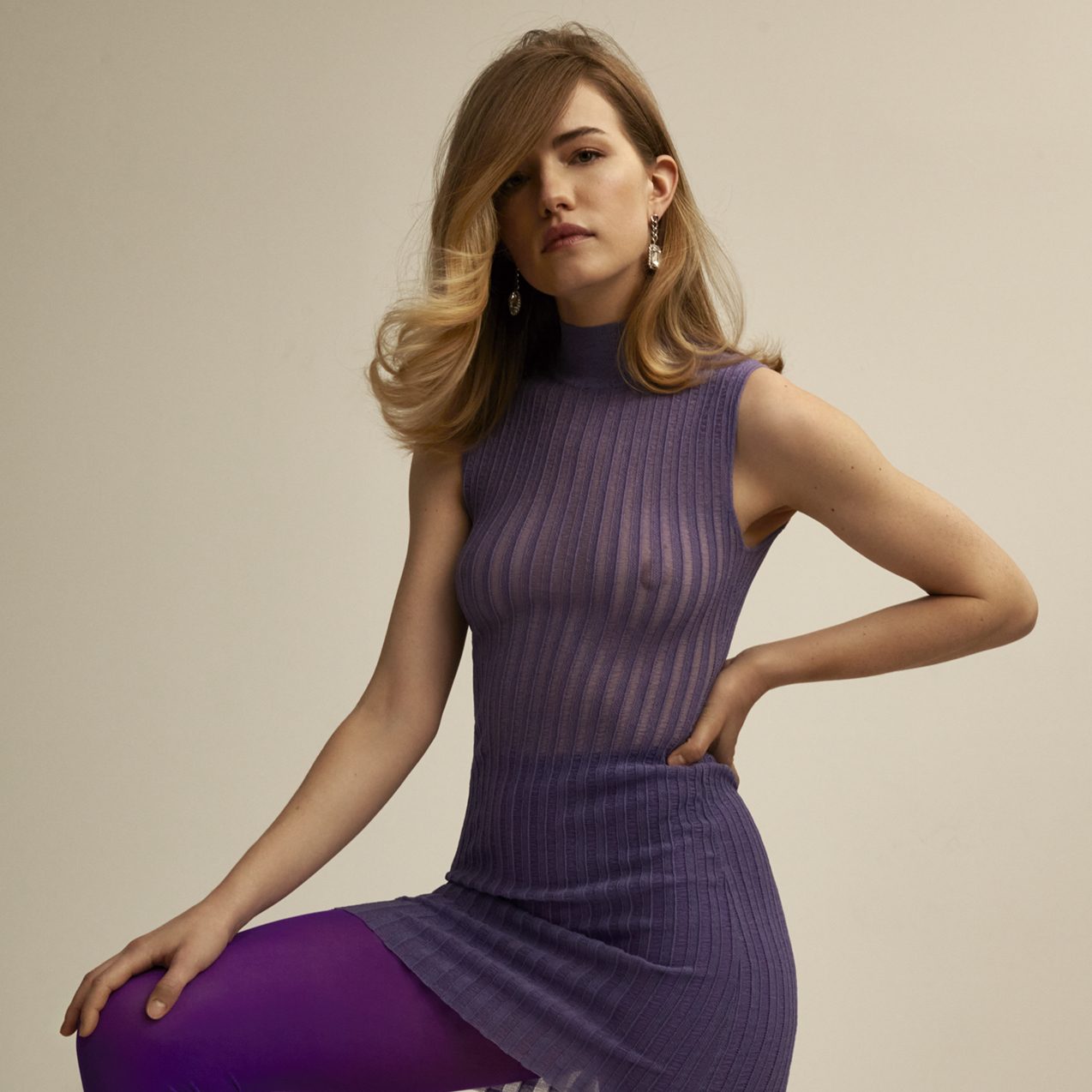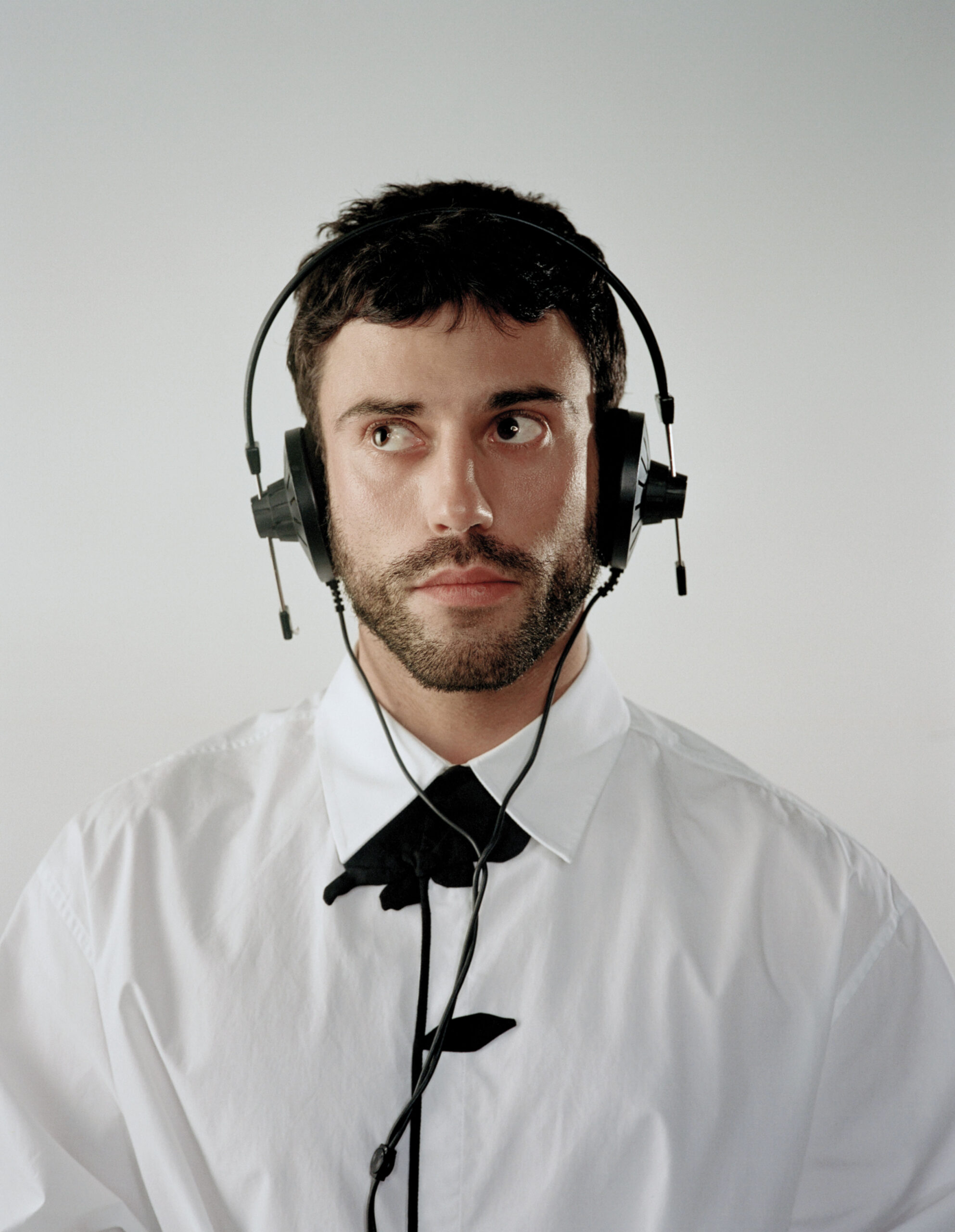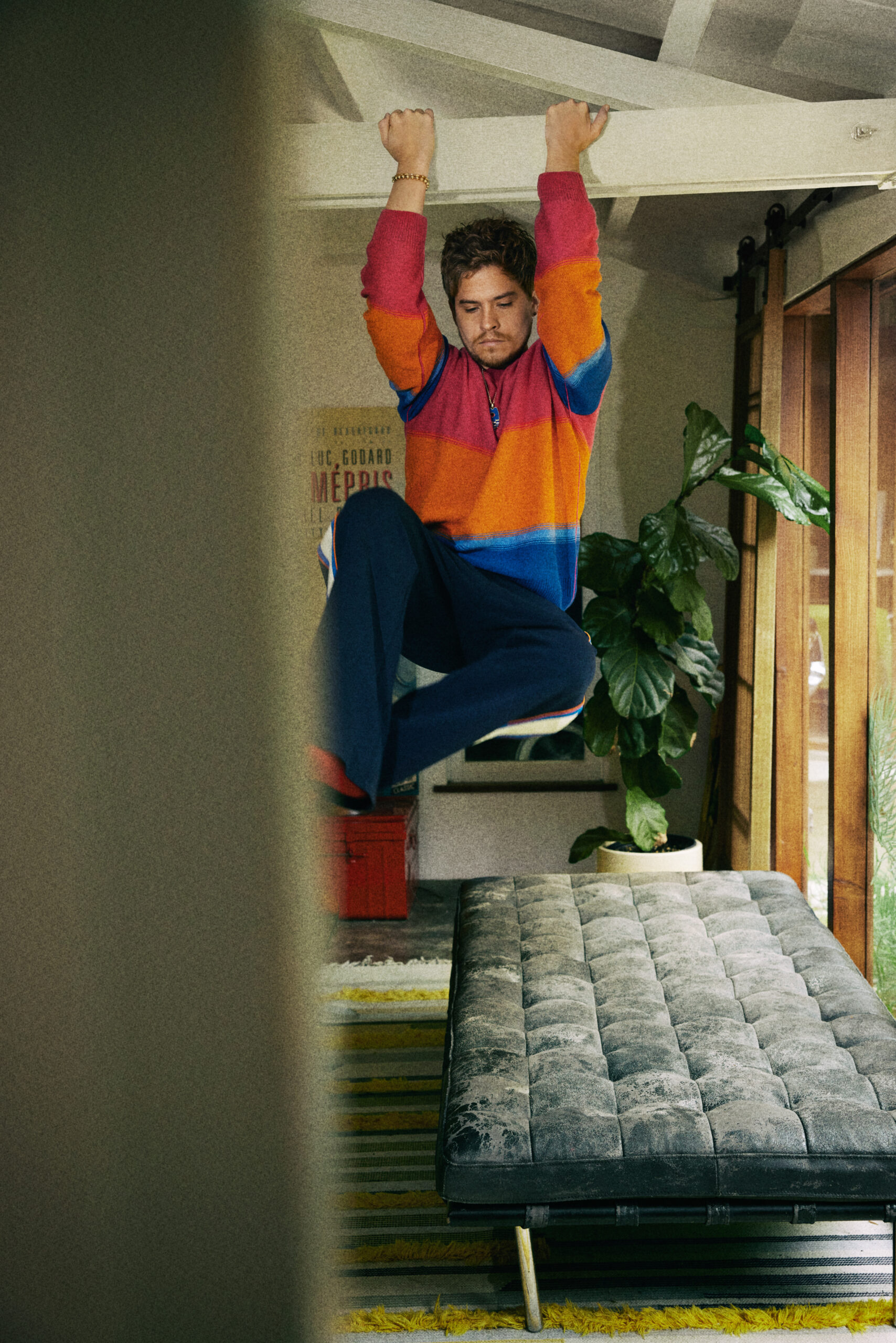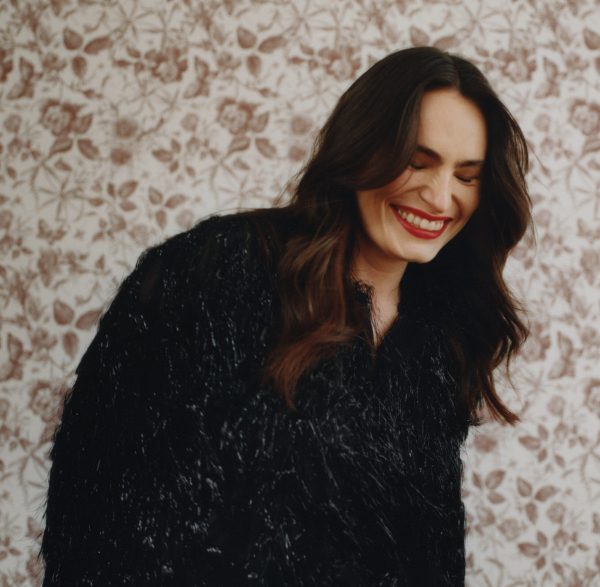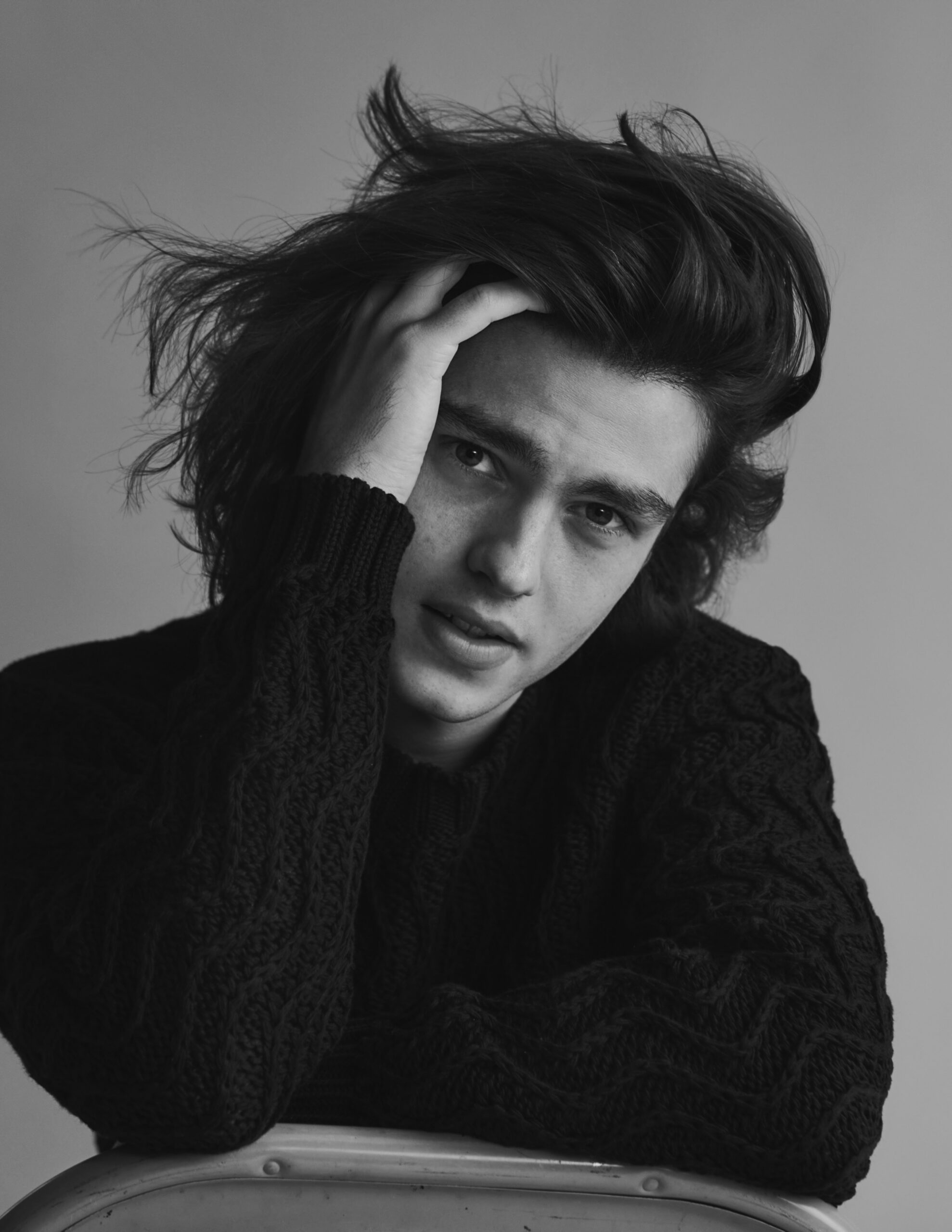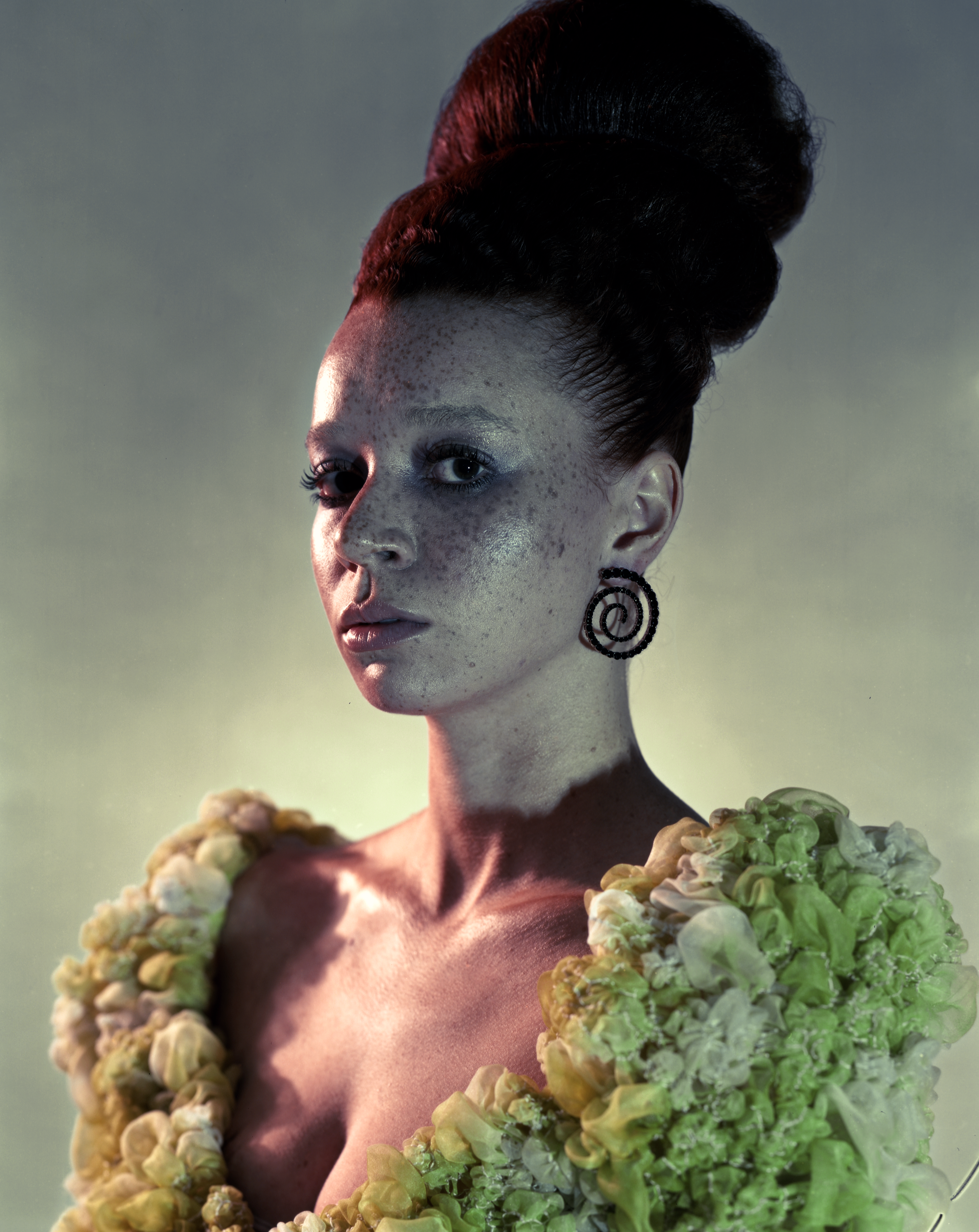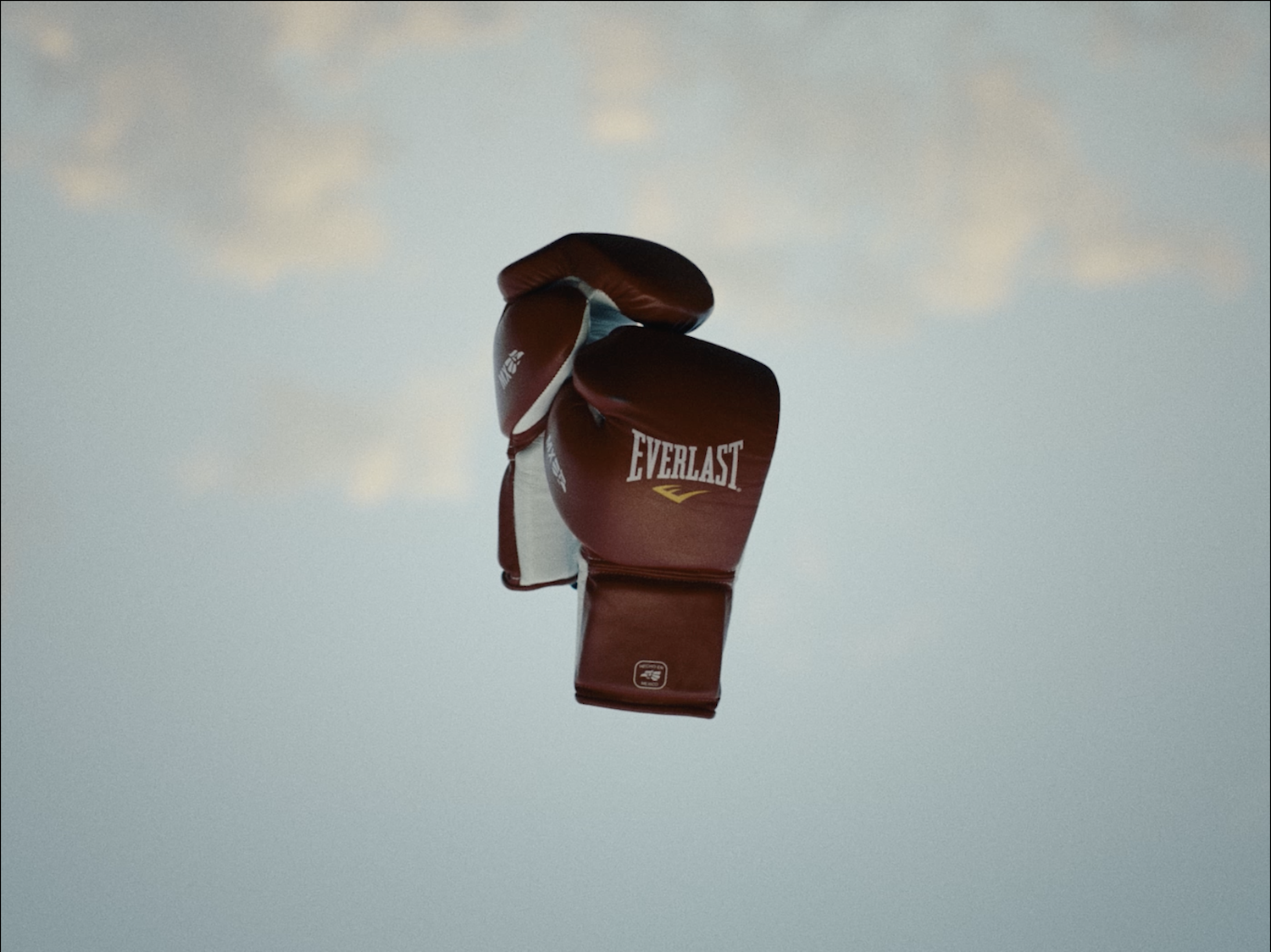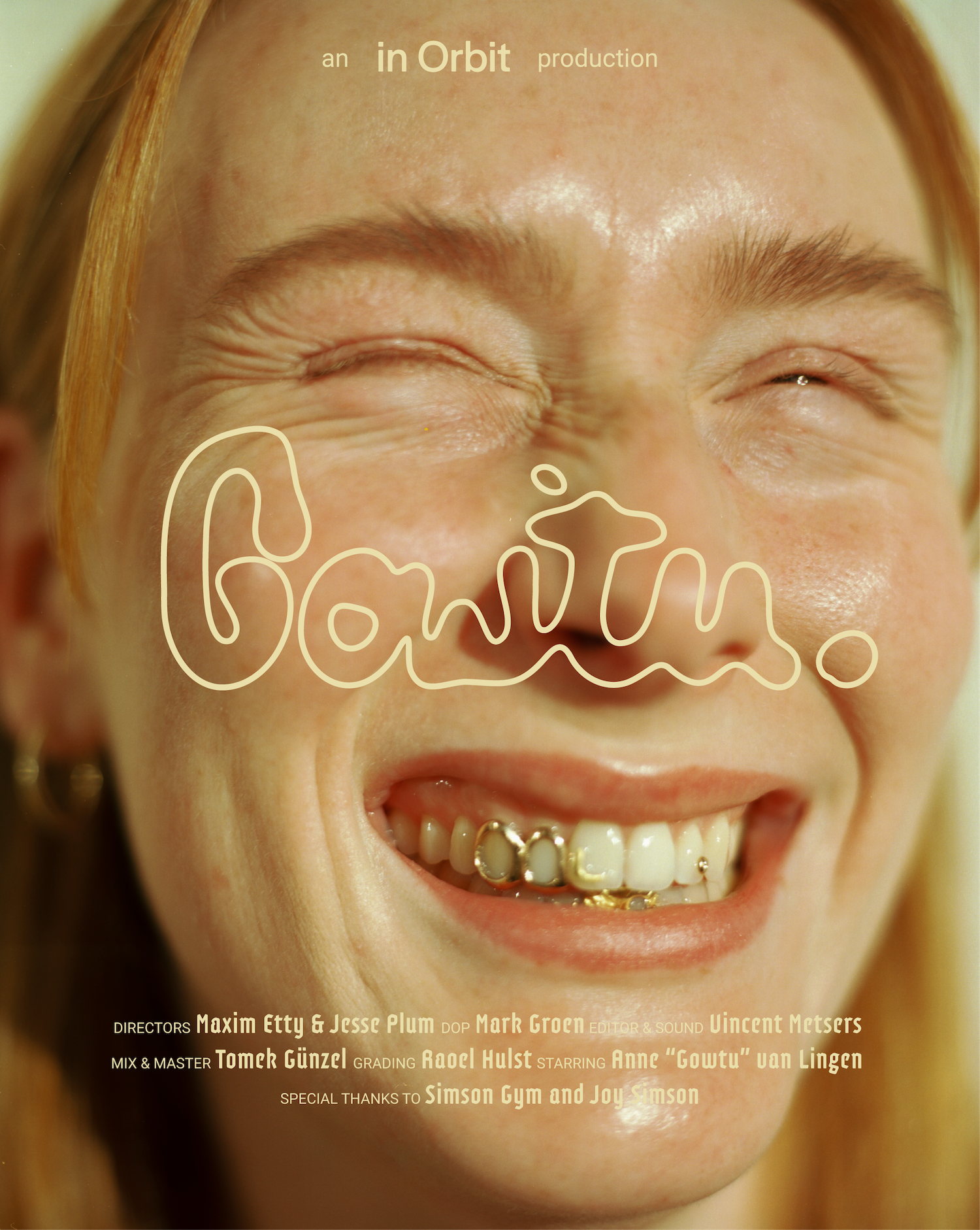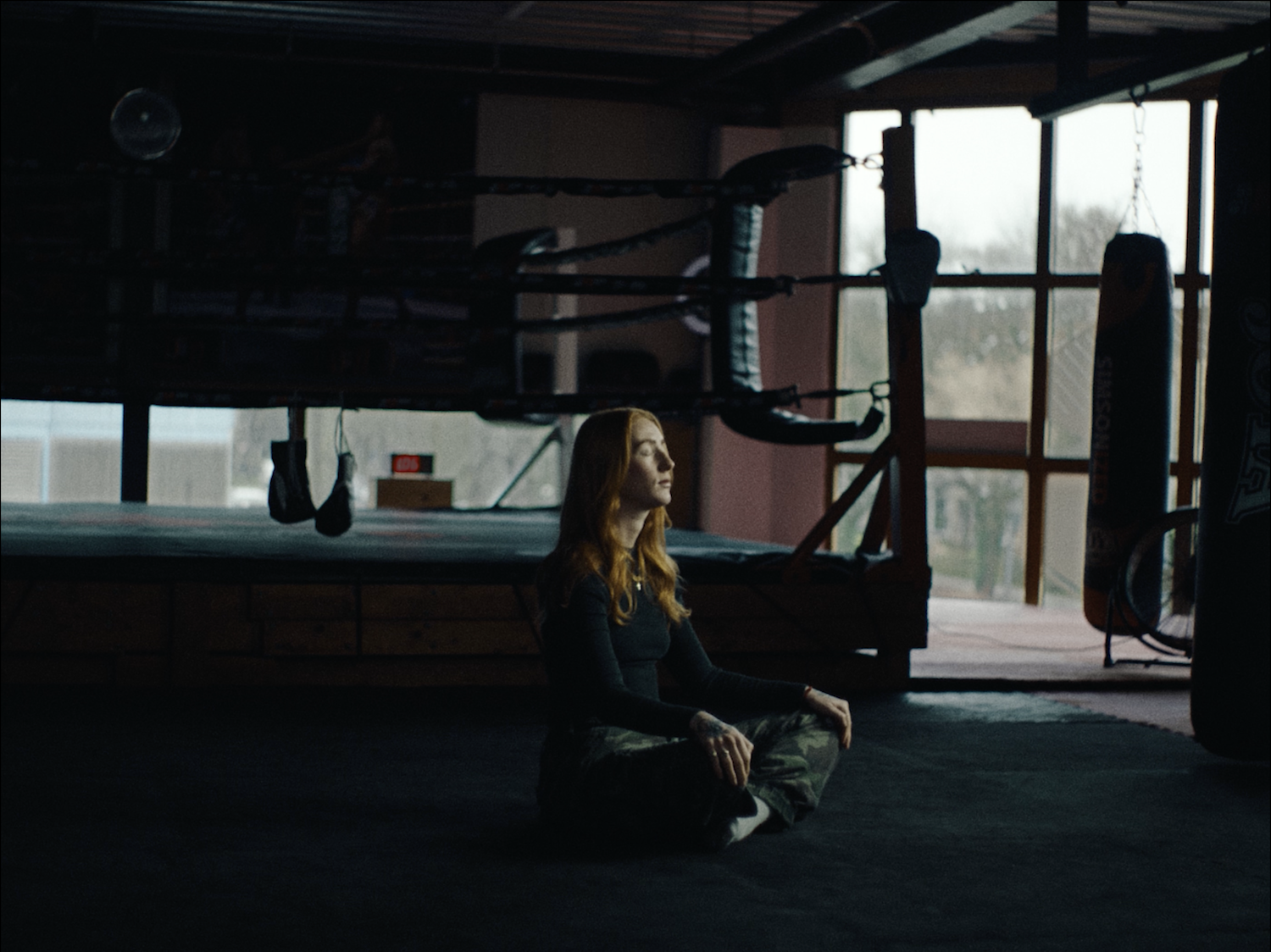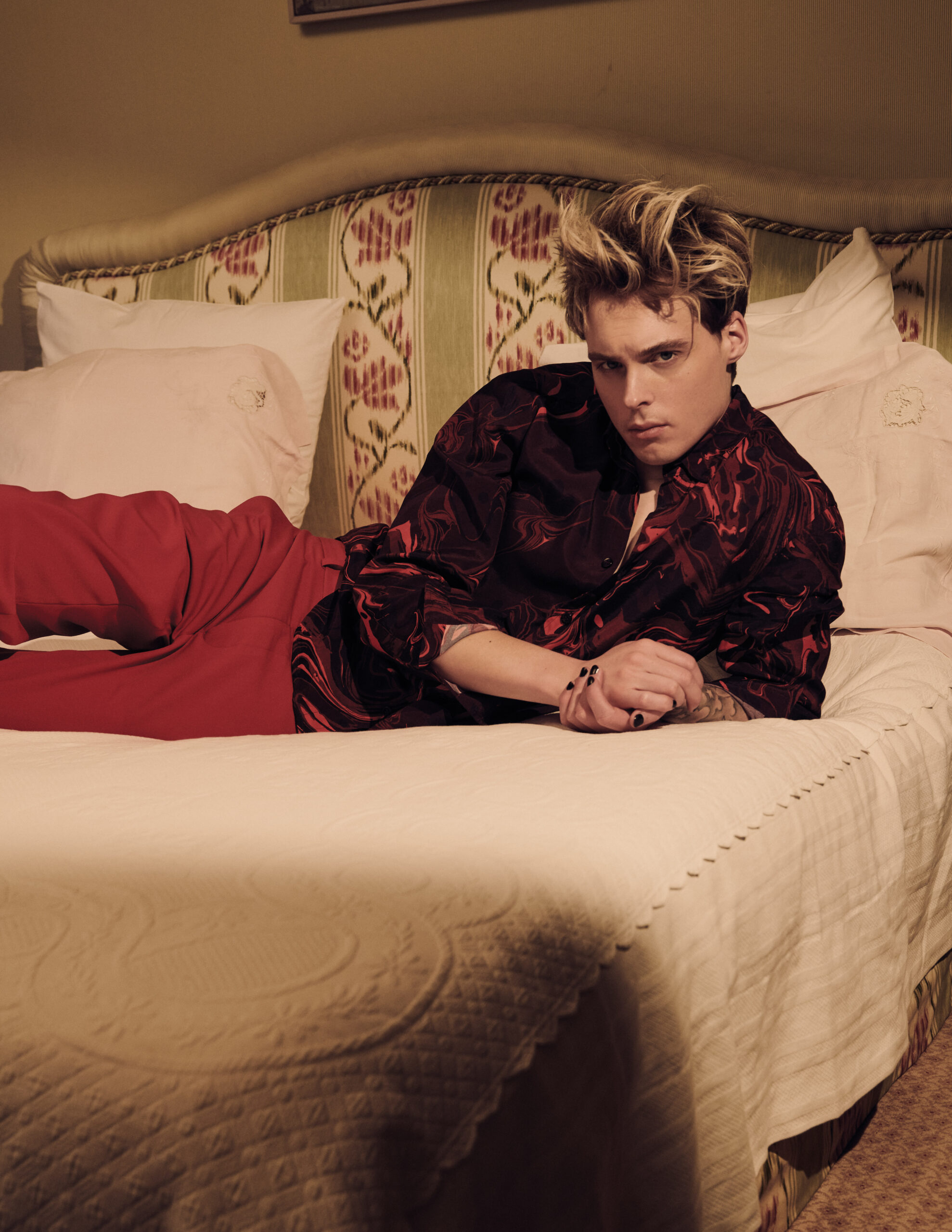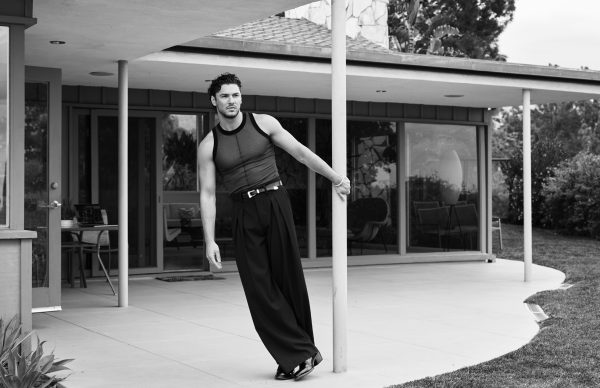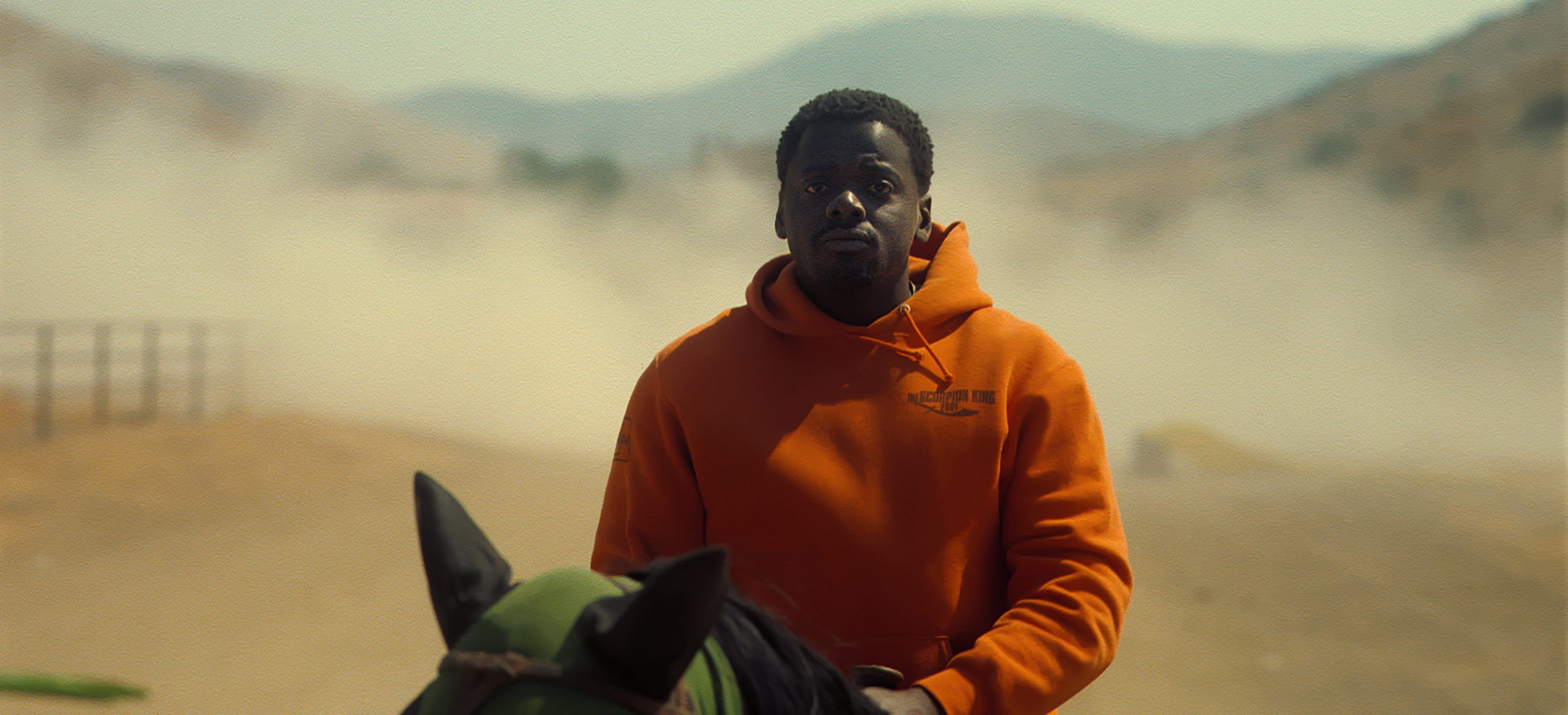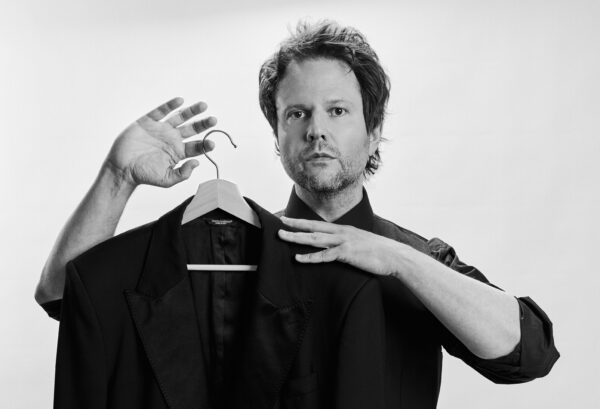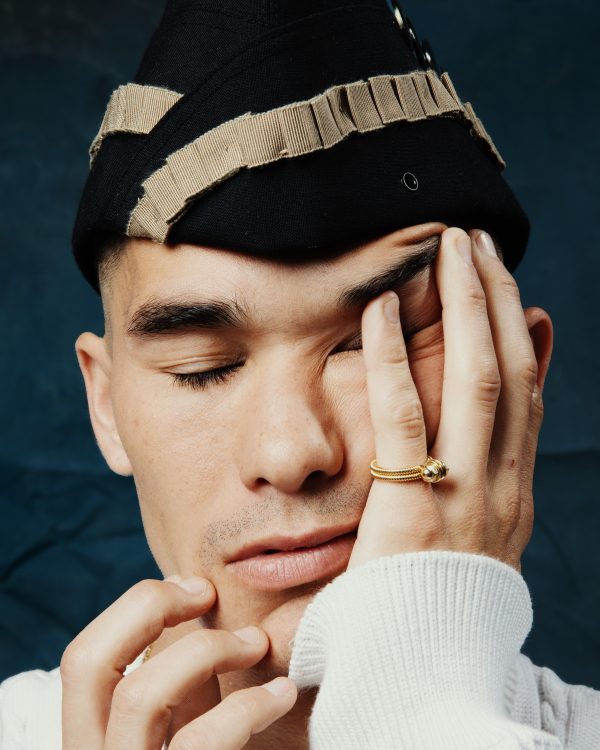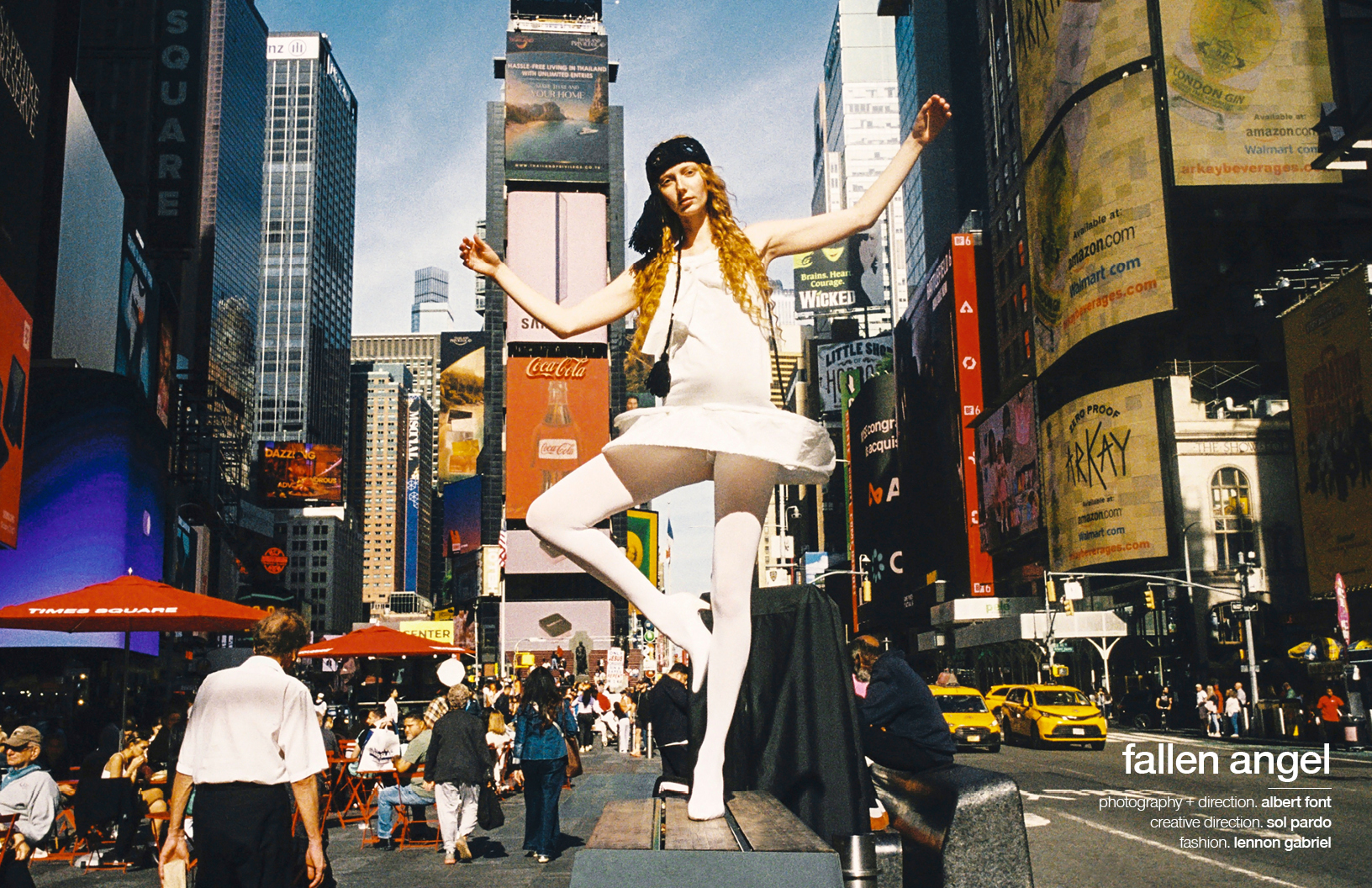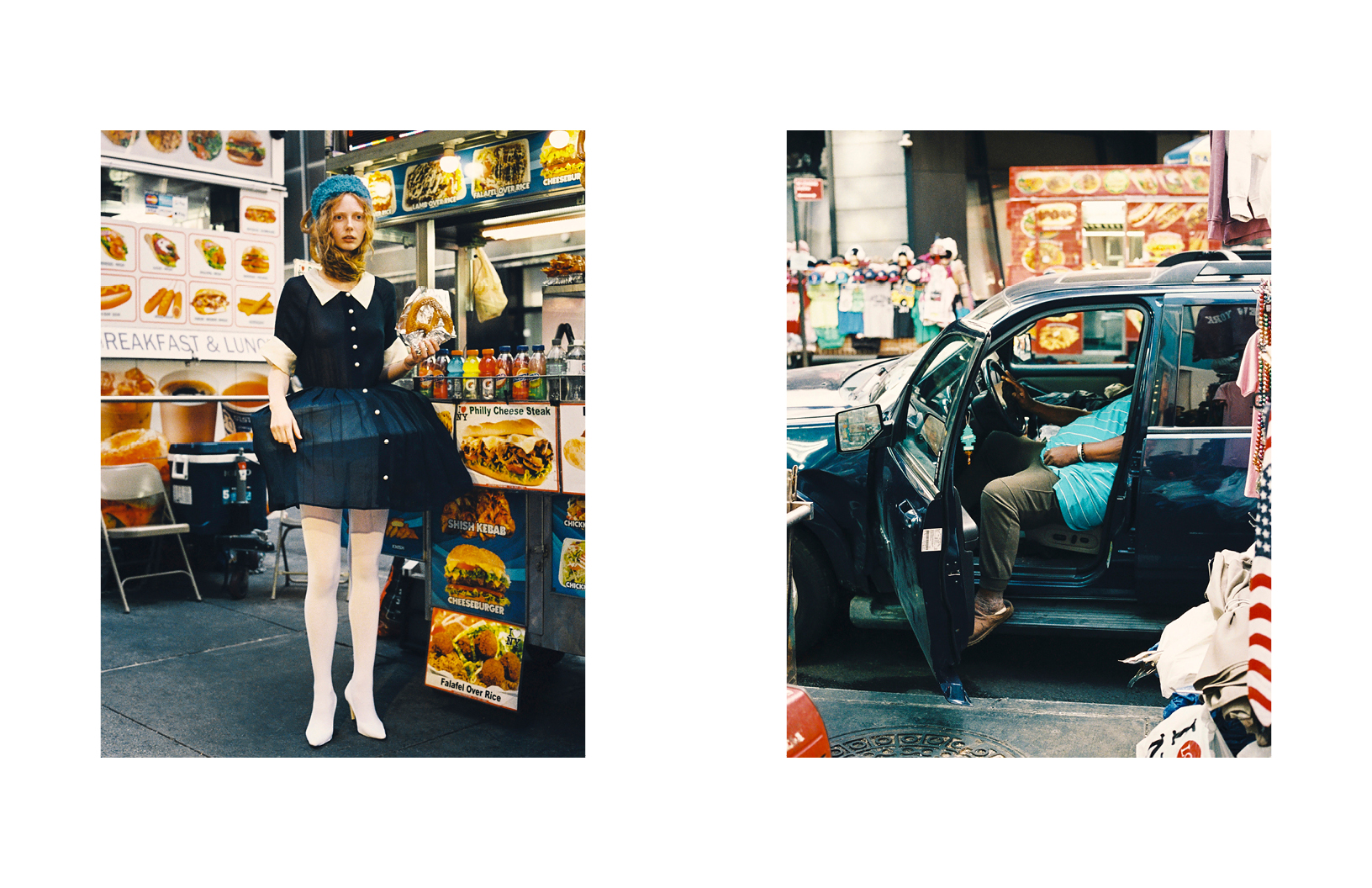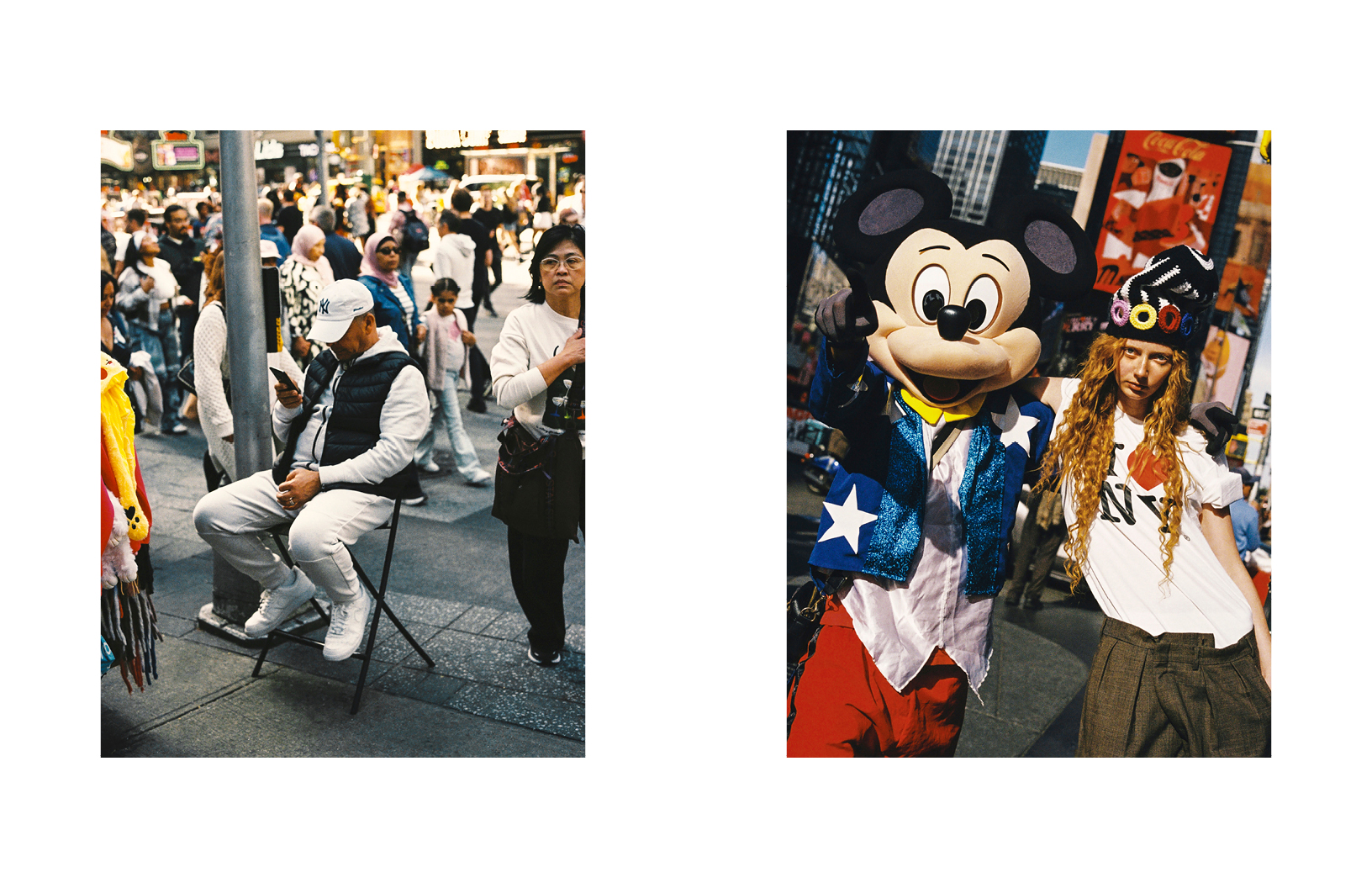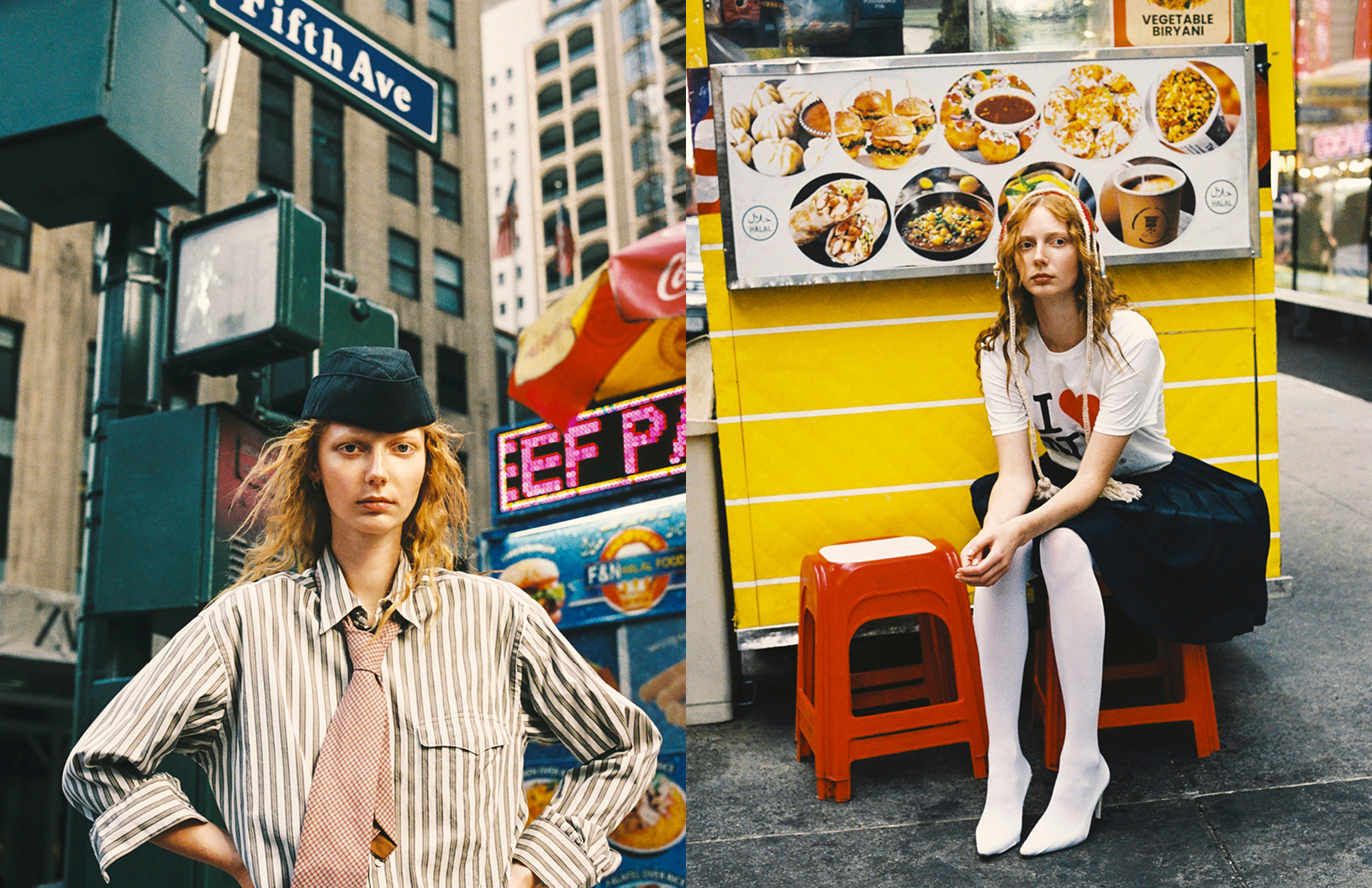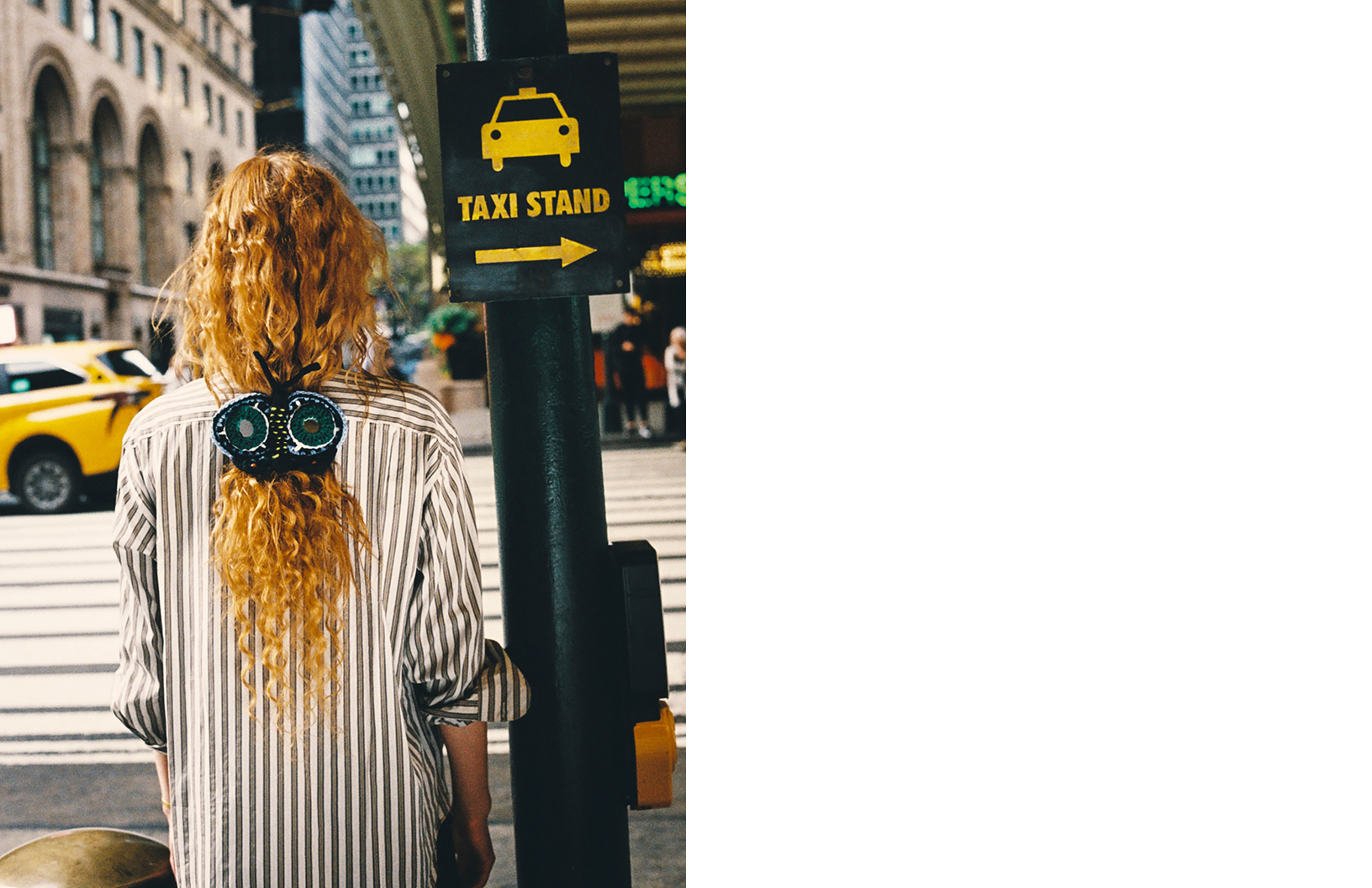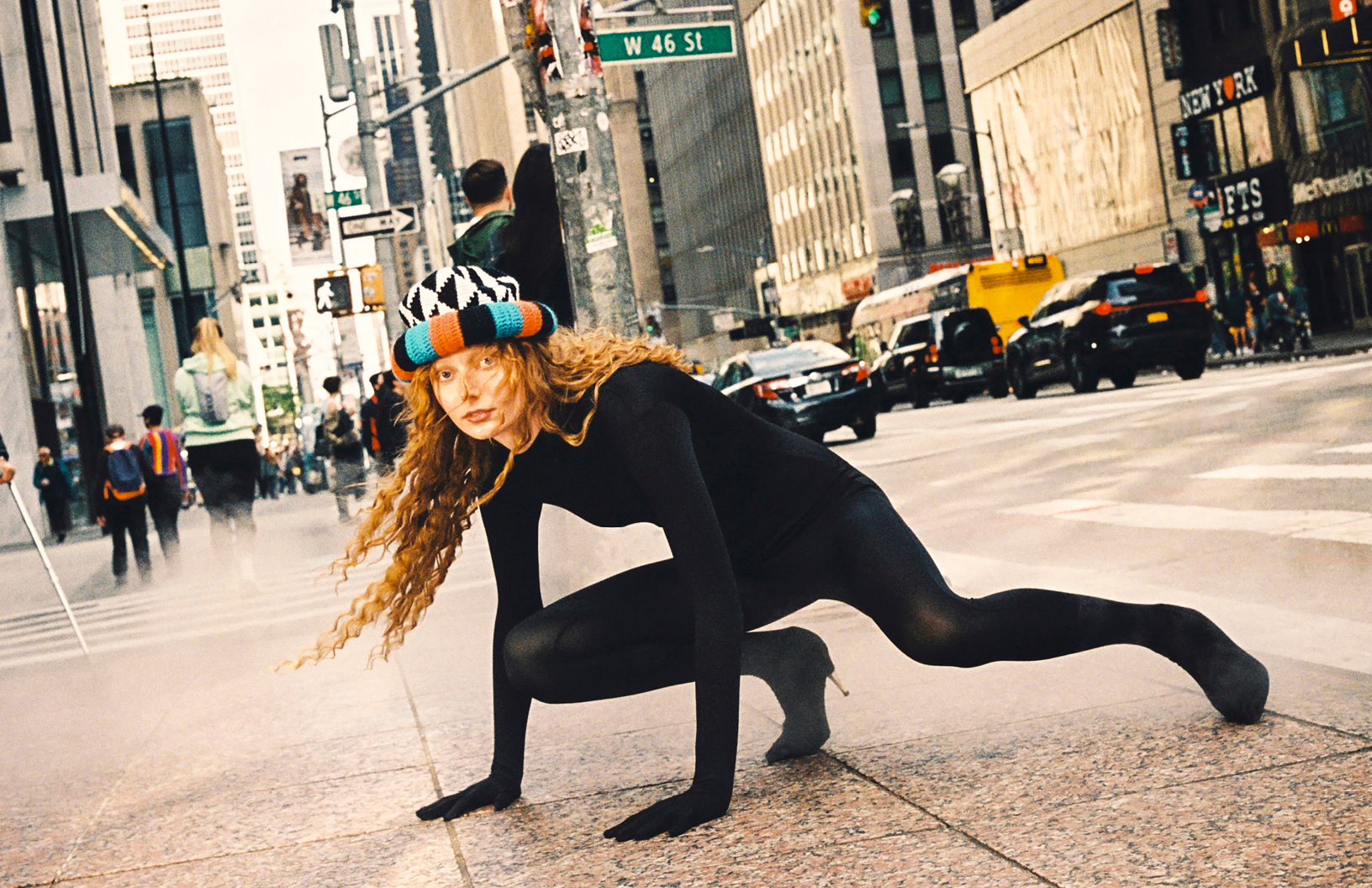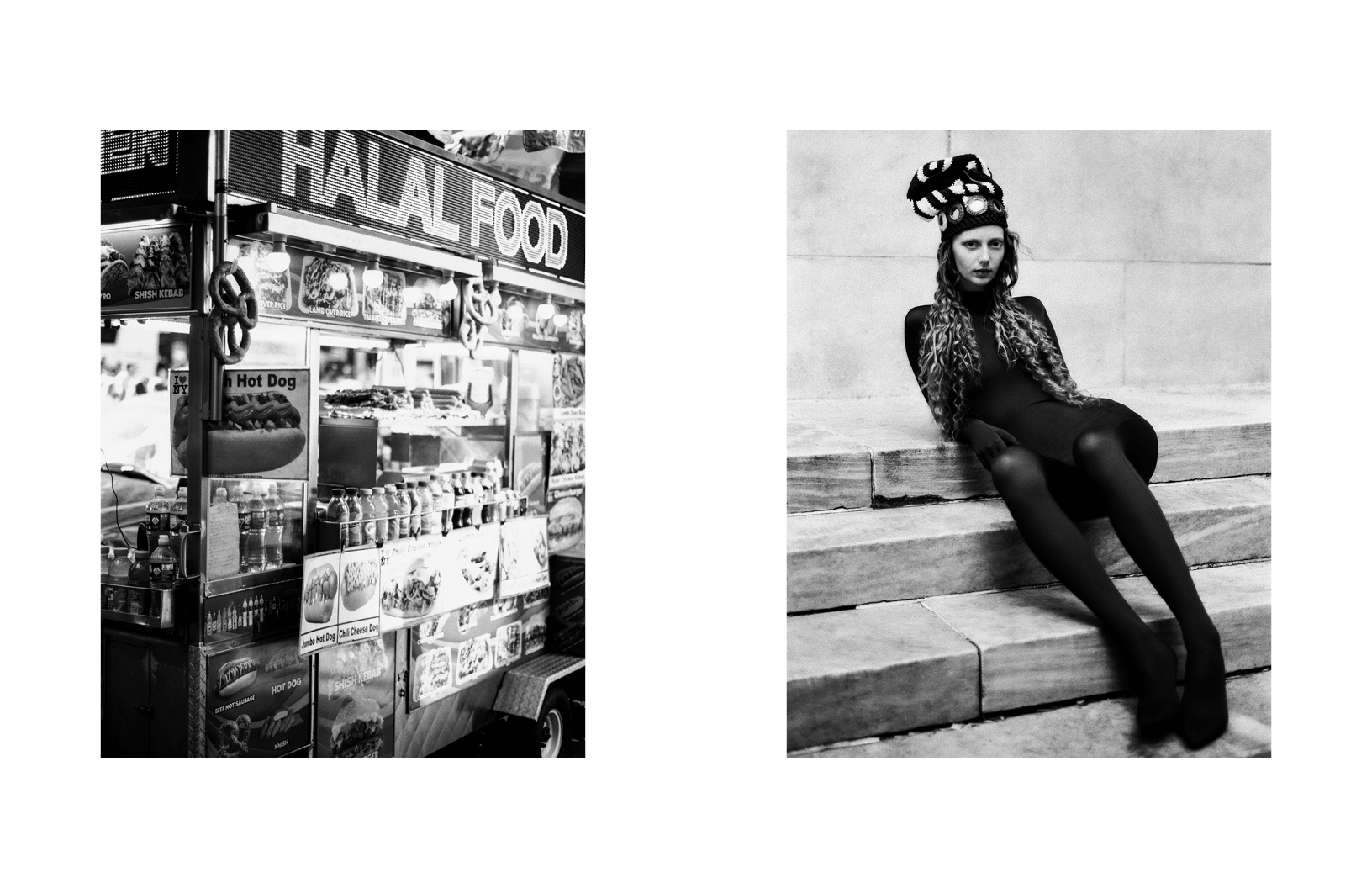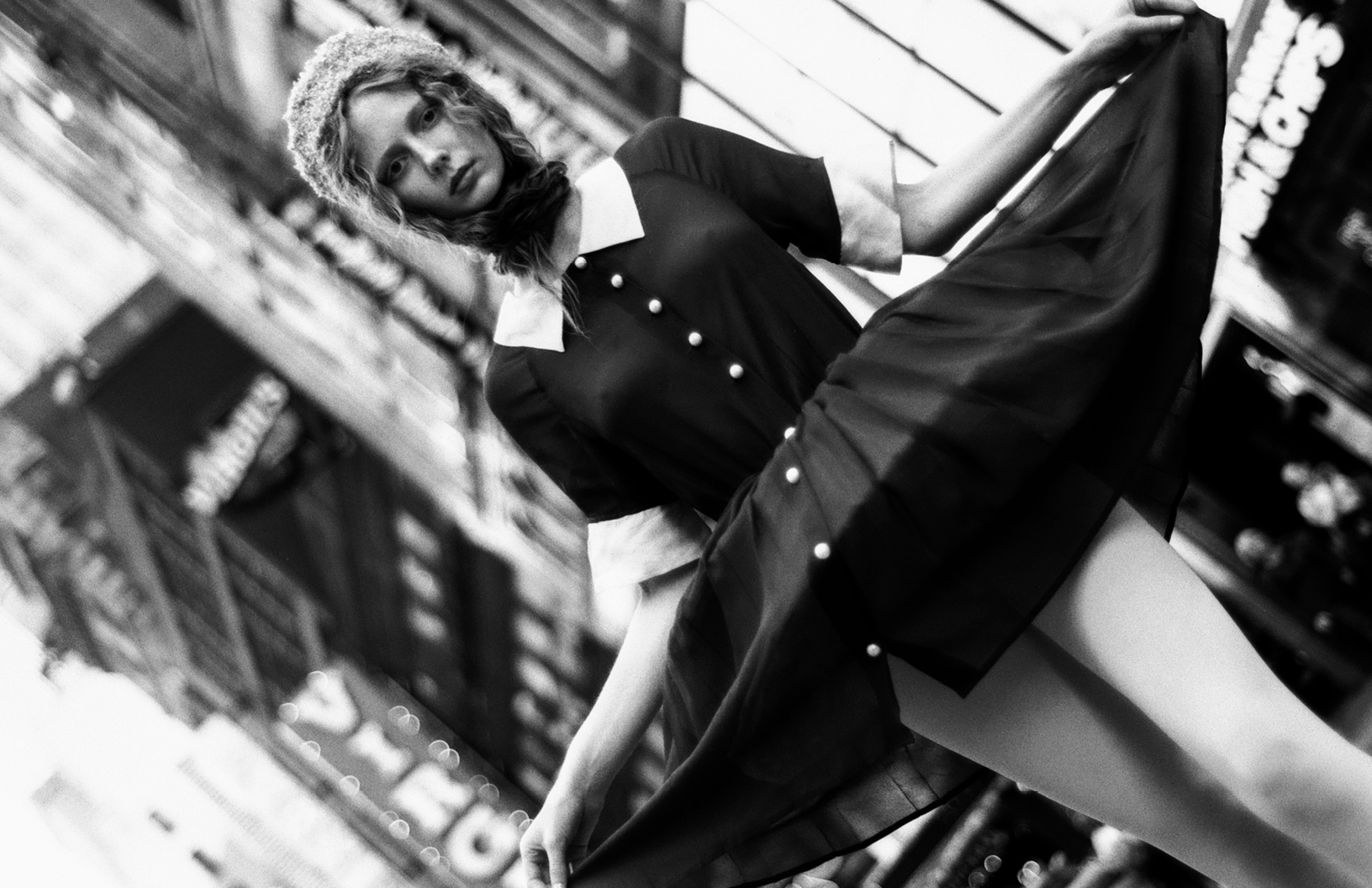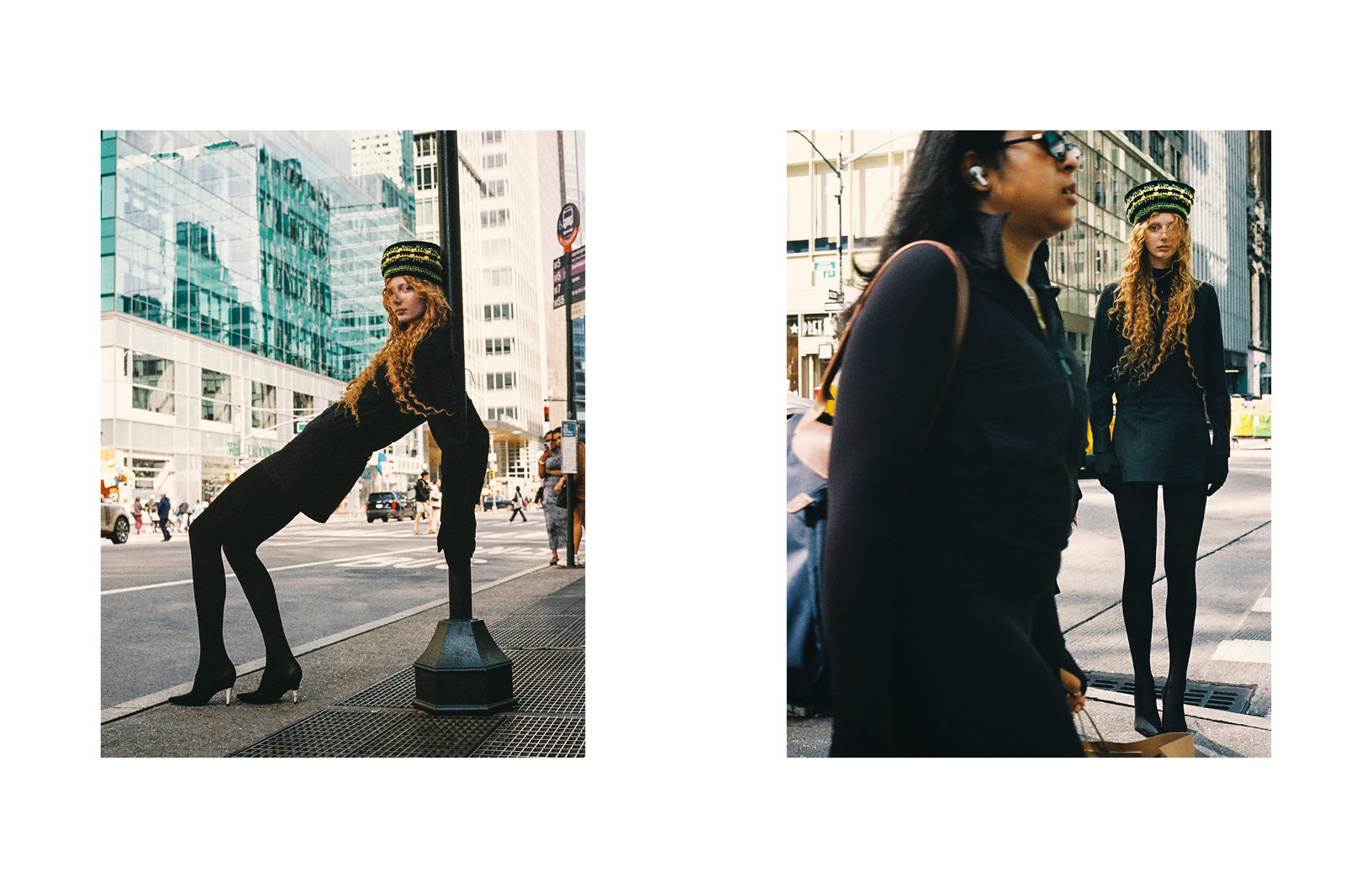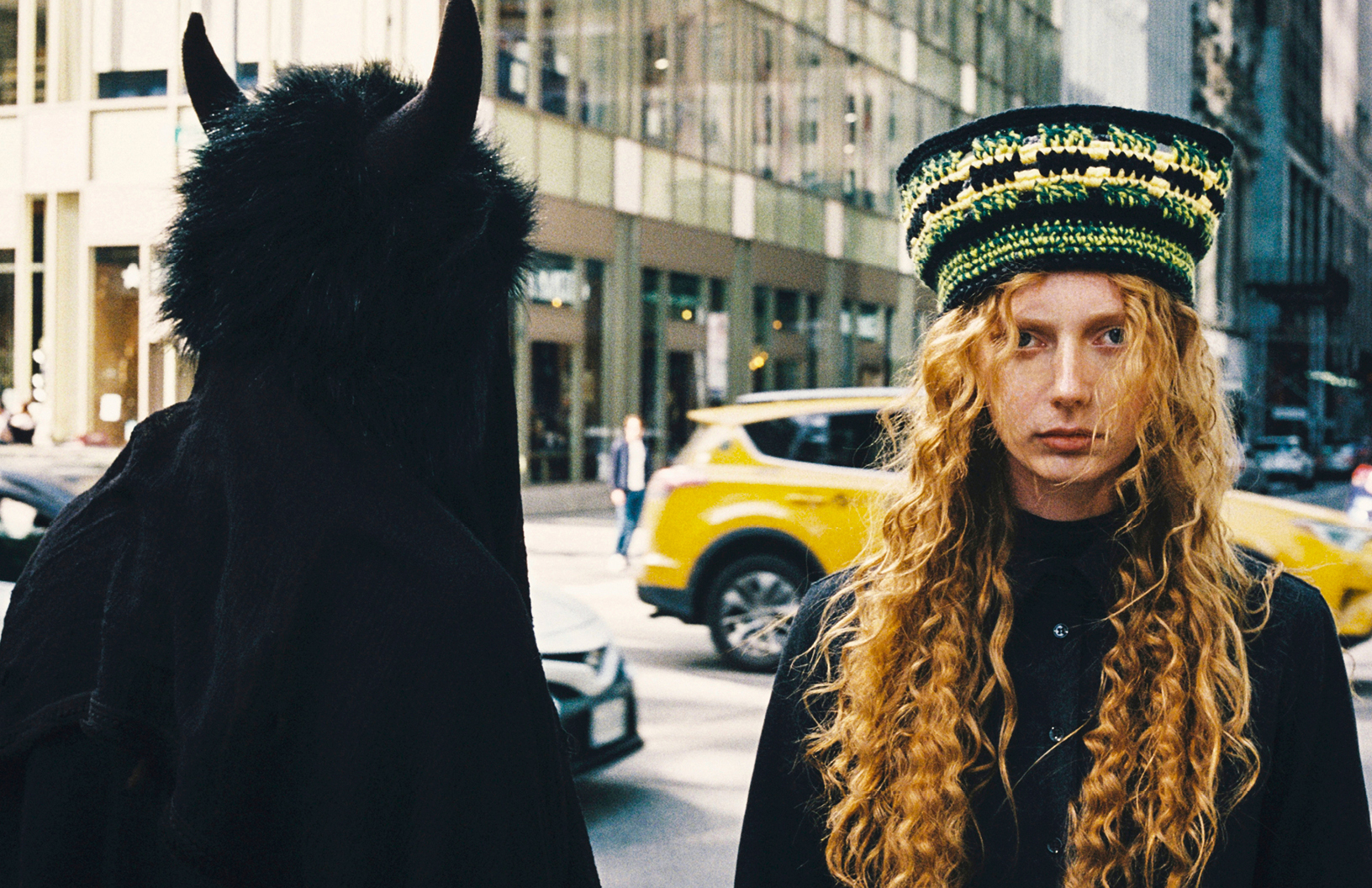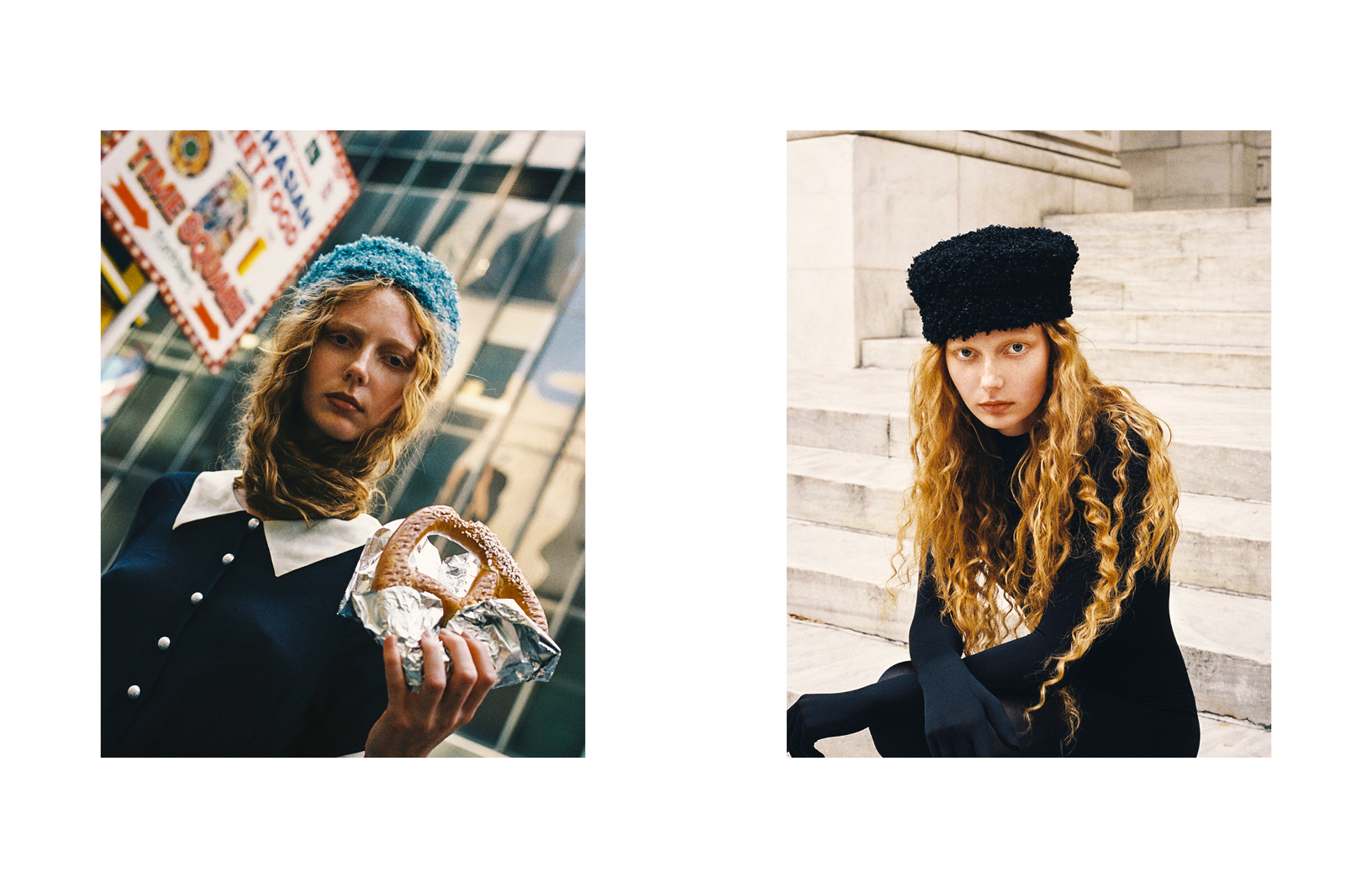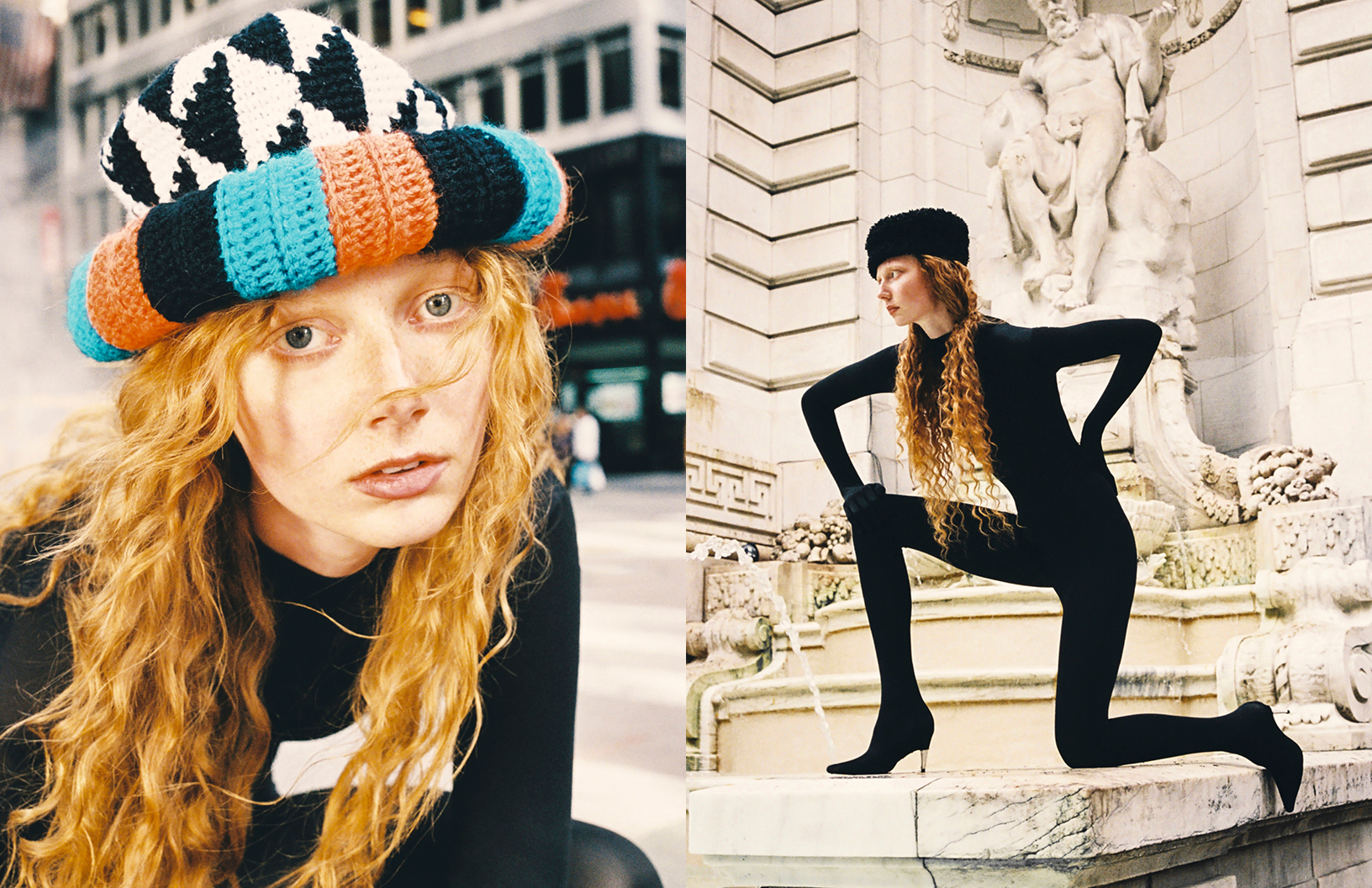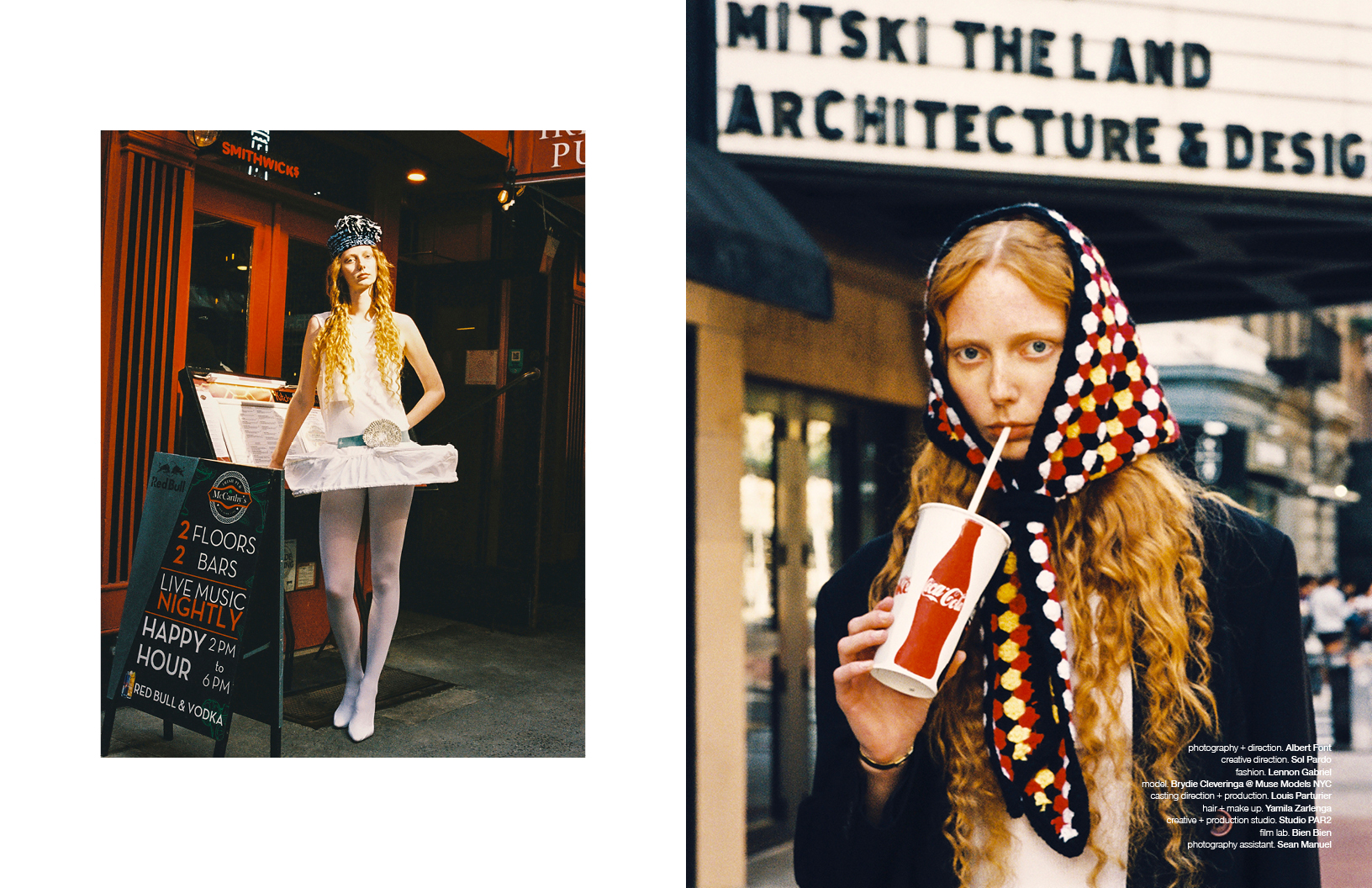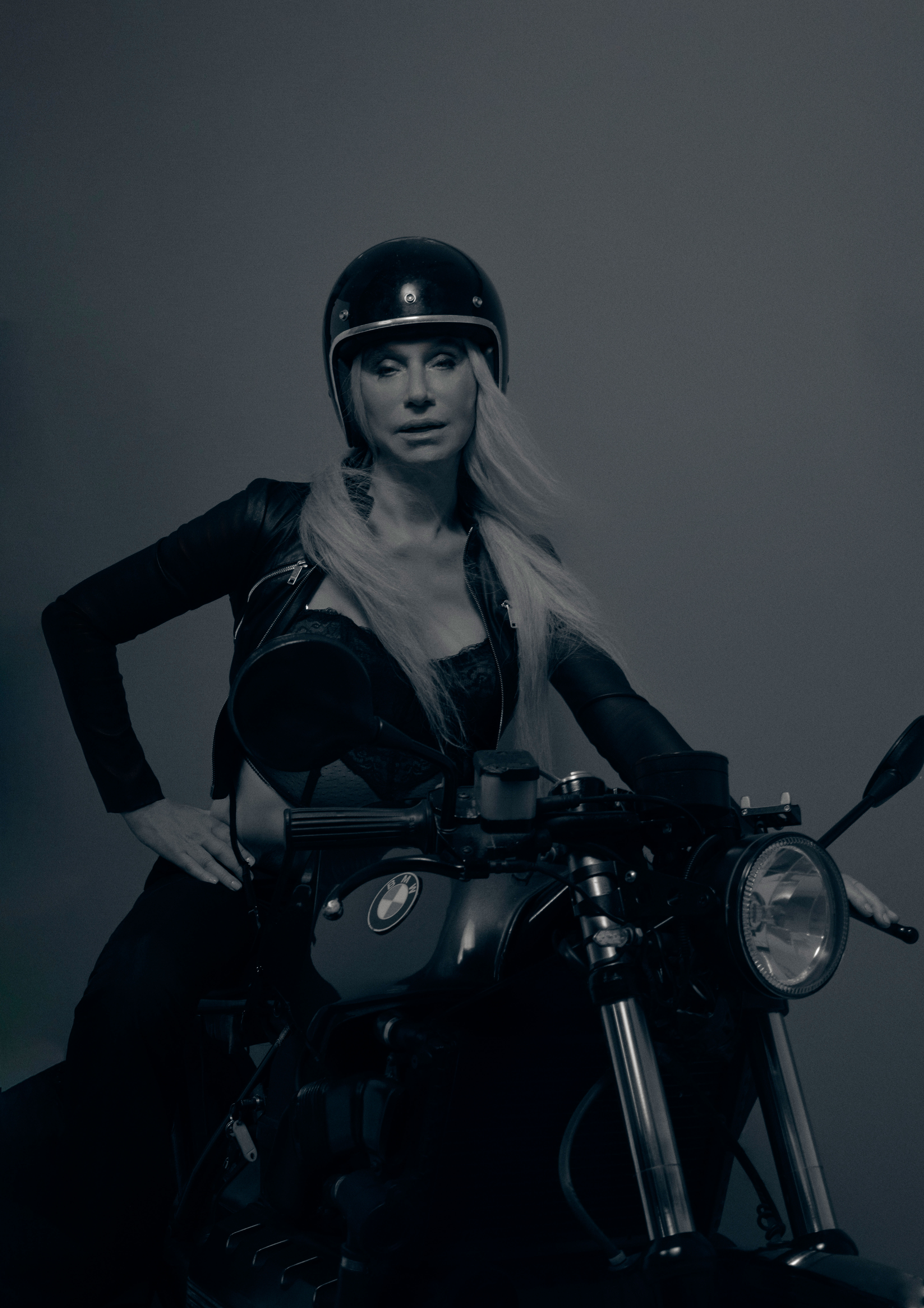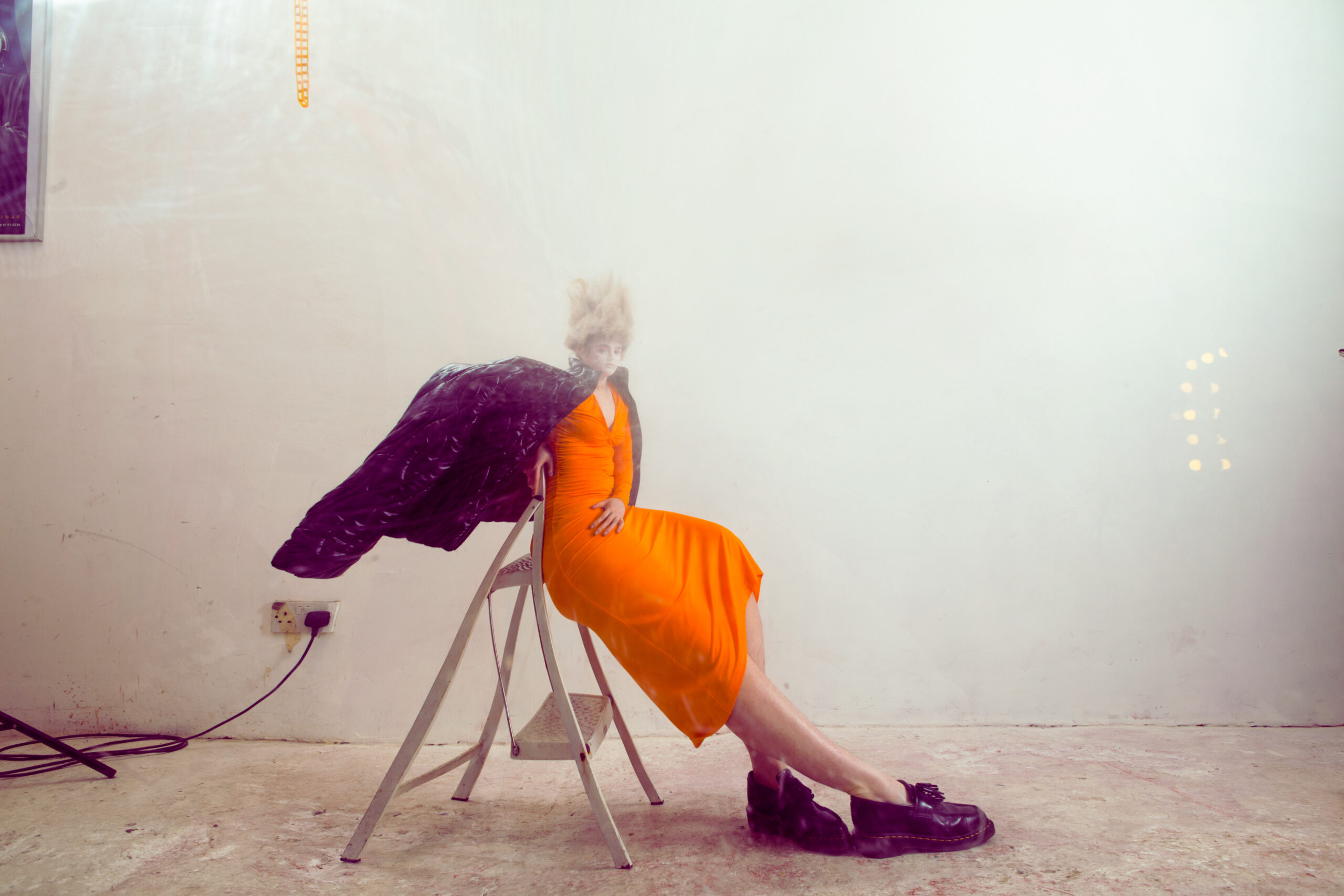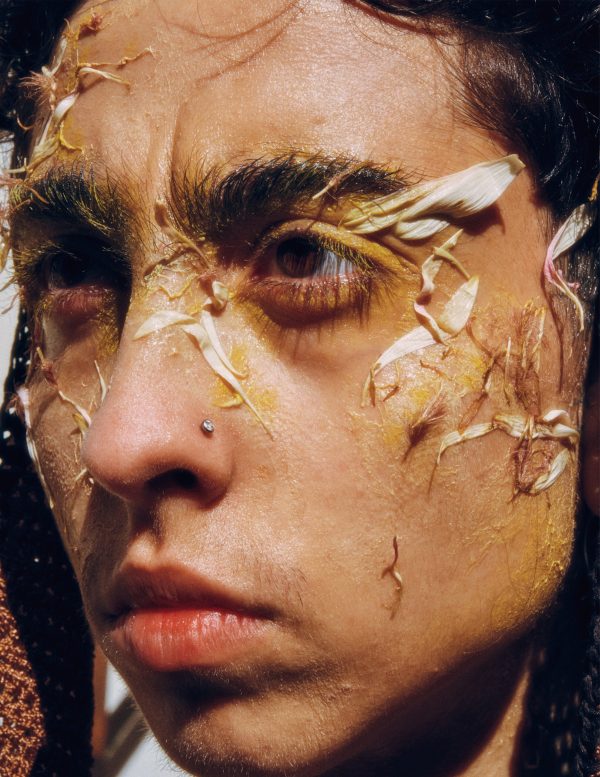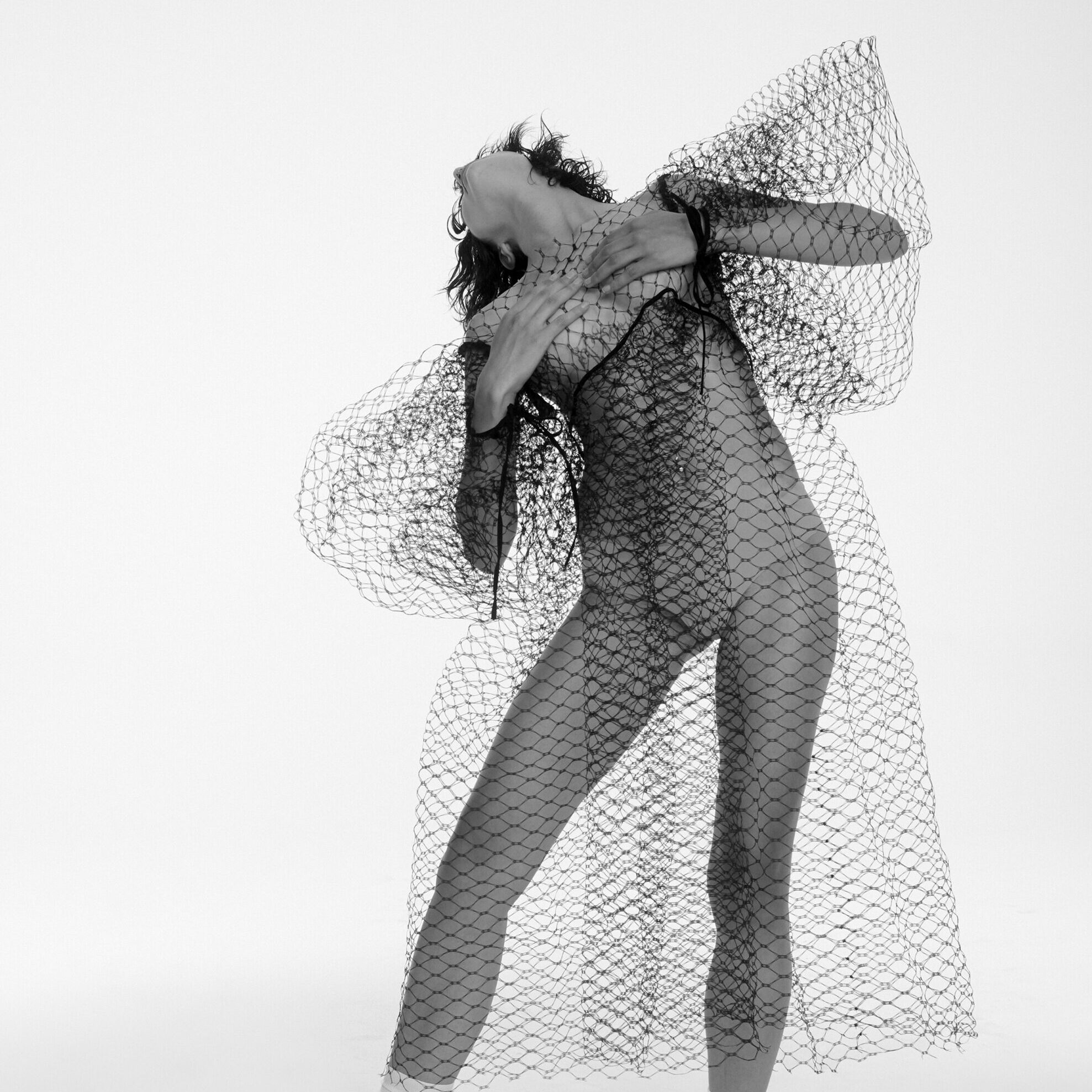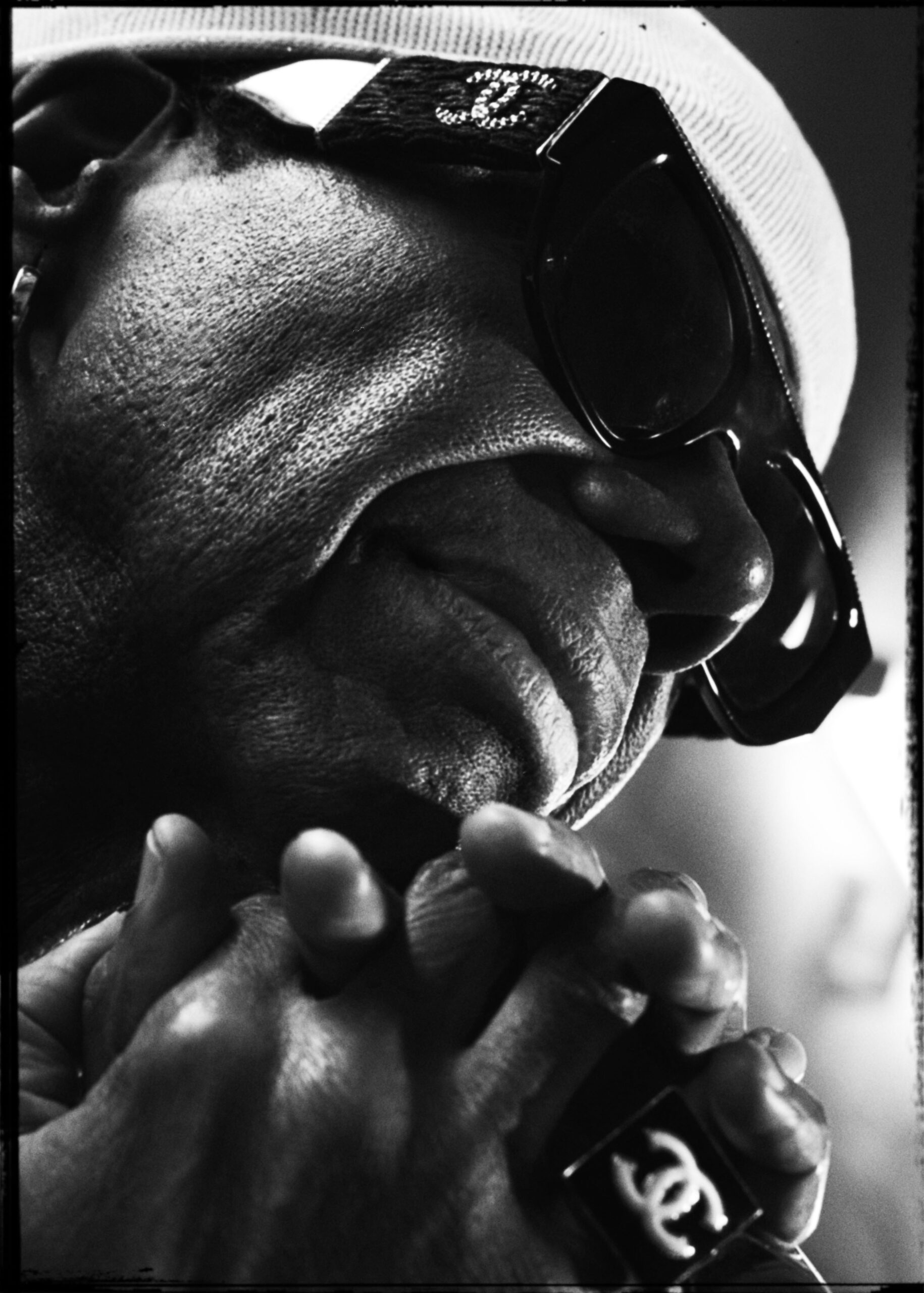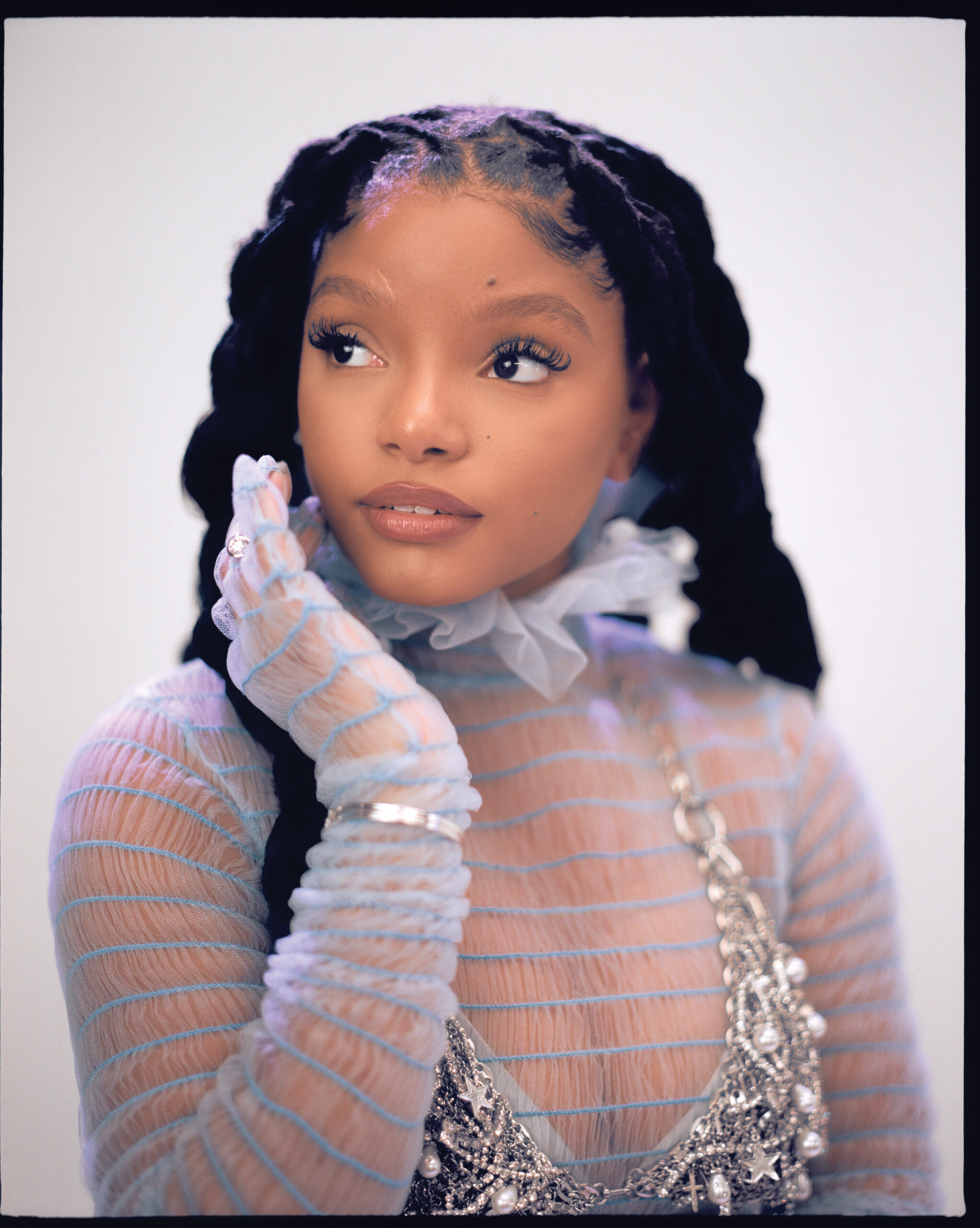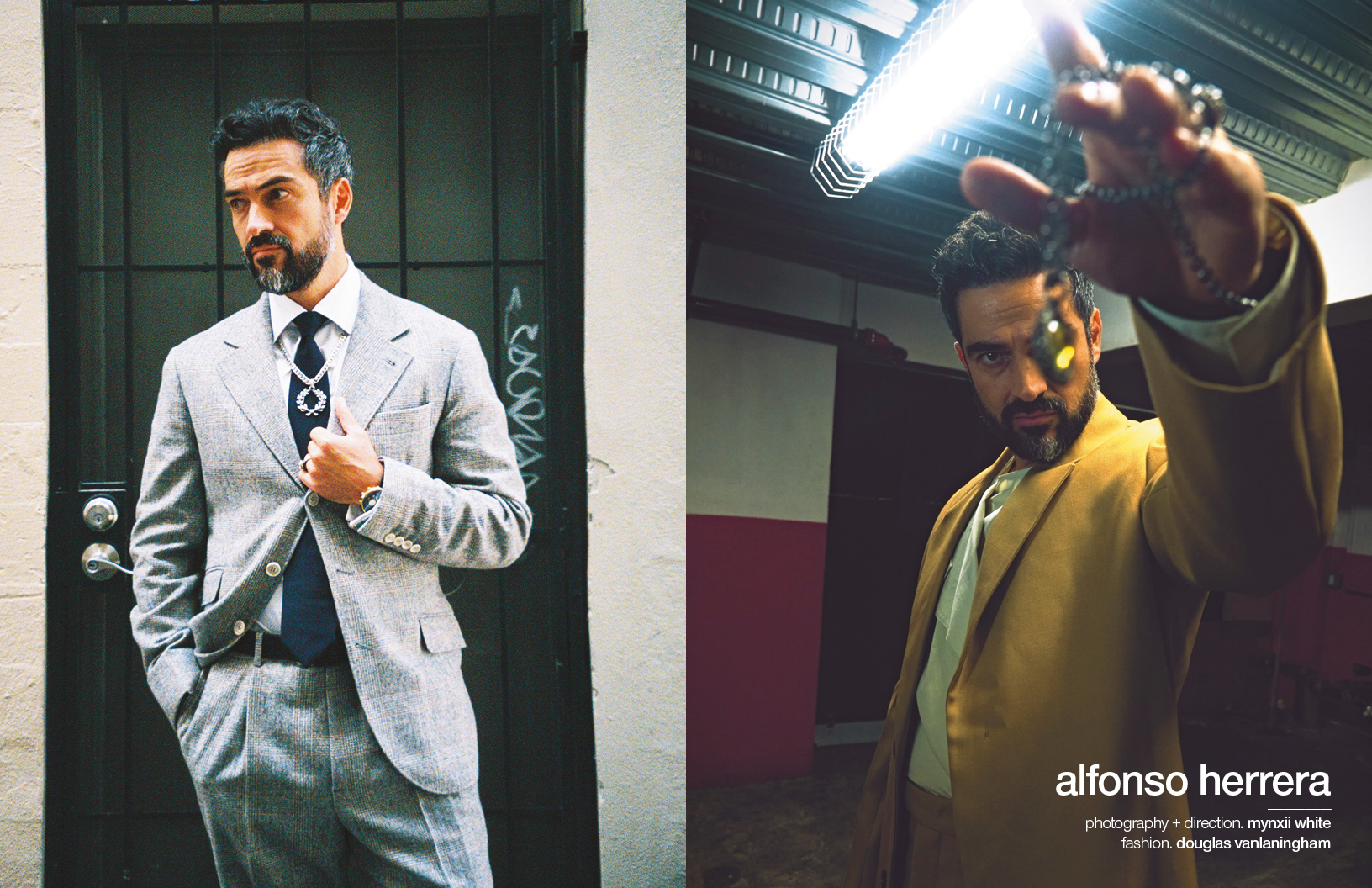
suit, shirt, tie + boots. Brunello Cucinelli
jewellery. TTEN
opposite
coat, shirt + trousers. Jil Sander
jewellery. TTEN
Mexico native Alfonso Herrera may be new to the cast of Ozark, but he’s no stranger to starring in some of television’s most-watched shows. Fans may recognize him from his co-starring role in USA’s Queen of the South (2020), Netflix’s Sense8, Fox’s Exorcist, or possibly his leading role in one of Latin America’s most watched series Rebelde, which spawned RBD, the wildly successful music band that amassed more than 89 awards, including Best International Band by Billboard Latin Music Awards, in addition to several Latin Grammy nominations. Booked, busy and balancing the steady influx of high-profile acting roles, the self-proclaimed pacifist was named Goodwill Ambassador for the United Nations High Commissioner for Refugees in 2020.
So how does he go from defending the rights of overlooked refugees on a global forum to depicting a ruthless drug lord who mercilessly stomps out civilians, sheriffs and bitter rivals on Netflix’s number one series? Easily, is the answer. The same passion and conviction that Alfonso utilizes to defend the voiceless are equally applied when he delves into the psyche of the cut-throat sicario he’s portraying. Herrera sat down with Schön! for a spirited conversation about how his analytical thinking continues to guide his creative decision-making, his personal aversion to surprise birthday parties, and much, much more.

jacket. Drkshdw
trousers. Balenciaga
opposite
suit. Saint Laurent
sweater. Rick Owens
shirt. Maison Margiela
boots. Prada
harness. Alexander McQueen
belt. Louis Vuitton
It is so exciting chatting with you. Firstly, because of your extensive acting resume, and secondly for your musical career with RBD— you were nominated for several Latin Grammys and so many Billboard Awards! You were also in a favourite series, Queen of the South.
That was a long time ago, yes. Thank you!
I’ve seen every single episode— binge-watching and re-watching.
Oh my God, I have so many good memories about that show, specifically working with Alice Braga and with all the showrunners. I have such good memories of New Orleans and shooting in Dallas. I mean, it was a very, very important show for me in terms of finding very, very good people. Fortunately, I’ve been very fortunate that I’ve found very generous actors that are more interested in caring for one another.
One thing I noticed between Queen of the South and Ozark, is that you have this history of joining casts that have an already existing dynamic. They already have their own “club” in a way. And then you come on board as the “new kid on the block”. How do you create a space for yourself when you’re joining an already established cast? You have to find your way in that…
There is a language that always is going to be key, and that’s being respectful and empathic. When you’re respectful, when you’re empathic, when you take care of one another, that language resonates in every single place. It doesn’t matter the space, it doesn’t matter the country, it doesn’t matter the project; that is a universal language. And that is always key: to just try to, first of all, have a good time, enjoy what you’re doing. Because…that gives you the possibility to concentrate a lot, if you’re in a friendly space.
If we are all comfortable— because it’s not just you, it’s not just me. It’s the person that is operating the camera, the electrician that brought the irons to do the scene…your colleagues, the directors, the cleaner, it’s a machinery that if one little piece is not in the correct place, everything falls apart, or it’s very difficult to operate…When I went to Queen of the South in New Orleans, I found amazing people. When I went to Ozark to shoot…I found an amazing group of people. And it’s the same if you’re respectful, if you’re empathic, that’s going to resonate everywhere.
Did you always have this holistic, inclusive view of life and relationships? Like, the hand that is connected to the body has equal importance as the eye, or the foot, in the same way, that every person in the community plays a vital role, no matter how big or how small, it’s essential to the whole. Was this always your pattern of thinking?
No, of course not. I sometimes think in a different way. But I went through a very difficult process in the early 2000s when I didn’t have a job for a long time. And when I recuperated that—that possibility of having another job— I said [to myself], “this is a lesson”. And I’m never going to complain. I’m going to understand that every single person is in a process. So yeah, I learned it—I learned it in a bad way.
The toughest lessons are the ones that actually stick, and for the long haul…Tell me, did you watch Ozark before you joined the cast?
Yes! Since Season One, I thought it was one of the most amazing TV shows in history.
What I love about moments— or realizations— like this, is the serendipity of it all. When you were watching Season One of Ozark years ago, was it ever thought to you like, “wow, I want to be on this show!”? Or did you have a feeling like “I’m gonna get a call to be on this show”?
Never. I watched the show as a person that enjoyed watching a good project, a project that was well-written, that was well-produced, and incredibly well performed. Never [did I think I’d get the call]. When I received the call from agents about the possibility of reading for [the part of] Javier, I said, “Alright, of course. Maybe it’s not going to be me.” And it was the biggest surprise to get the chance of being cast for this role and to be part of this family.
What’s interesting to me is that you have this peaceful disposition. I love your choice of words and the feeling that matches them. Contrary to your persona are some of the roles that you’re known for performing so well—charming, yet murderous sicario, Javier Jiménez, on Queen of the South, and the relentlessly cutthroat drug lord, “Javi” Elizondro on Ozark. How do you sink yourself into these roles, seeing that they’re so different from who you are day to day?
By not judging them and trying to understand them from a human point of view. Even though, if you take into account that both come from very hard environments. In Queen of the South, you’re talking about a character that the only thing he knows is to operate. He gets an order, and he operates, and he tries to be the best in what he does. He’s following the leadership of another person. On the other hand, in Ozark…he is also a person with a lot of “initiative.” He has a lot of ideas, but his ideas are not very good. So you have very different personalities, even though—at simple sight— they can seem the same…they are very, very different…But just like that, trying to not judge them and trying to understand them from a very human point of view.
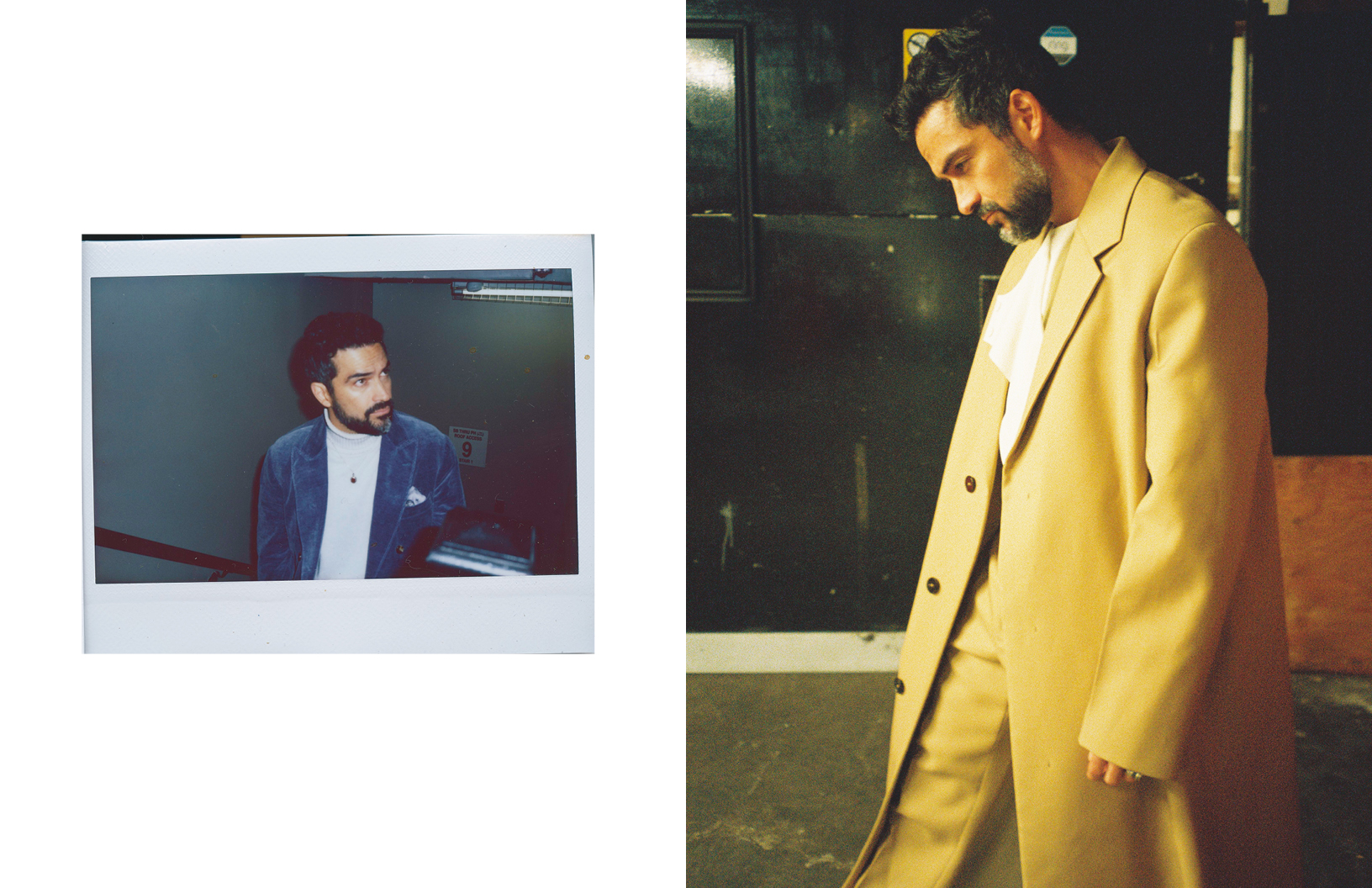
suit, turtleneck + pocket square. Brunello Cucinelli
jewellery. TTEN
opposite
coat, shirt + trousers. Jil Sander
jewellery. TTEN
I’m listening to how you describe both characters, and also the fact that you approach the roles without judgment as you portray them. Has your understanding of their depths affected your understanding, or perception of some of our controversial world leaders? For instance, Trump and Putin—as controversial as they are, or as harsh and unfeeling as we may see them be— is there a part of you, that’s able to…not so much delve into their psyche, but approach their emotional dispositions with the same compassion as you do the bad guys you portray?
It’s very difficult to do that, specifically. If you take into account people, they are not empathic, they are not respectful of minorities, and they are just thinking about themselves. And specifically, sometimes something is fiction. And the other thing is real life. I just look at the piece, and I try to understand that tiny little piece that I am given in order to do a job. Trying to translate that into a world leader that is not bringing peace, but is bringing chaos…I cannot find a possibility to create some kind of…to try to understand them. There could be many, many things that I am not capable of expressing an opinion on, because it’s such a complicated question. And it’s complicated to elaborate with someone that has no respect for another person, for another human being. And I just don’t understand that… I’ll tell you something that resonates with me…I once heard the president of Uruguay saying something that is very interesting, which makes me think about Trump. [He said] a poor person is not a person that has little; a poor person is a person that has a lot but wants more and more and more and more. That is a poor person.
That’s a powerful perspective on the definition of “poor.” I’m holding on to that…It’s a mentality.
Whereas another point of view of the rich is to be enriched, not just by what we have, but by what we are…He’s probably a person that is poor. Poor in another point of view.
I like those definitions…Onto a topic a bit unrelated, but equally curious, when you’re on set, you’re working 13-15 hour days—
Sometimes!
Thirteen to fifteen-hour days-ish…So when you’re acting out that role, and you’re in that mindset for more hours of the day than not, how do you detach yourself emotionally from those roles? When the director yells “Cut!”, and you leave the set, and you’re out here with your family or whomever how do you detach from that and go back to your day-to-day life?
I mean, that’s our job. We put a mask on, we leave the set and we take the mask off, and that’s it…I’m not perfect— I once did stage work in Mexico City, where we did like 200 representations. Two hundred shows where I have to kill each and every single show a person and that— in a subjective way— you’re scratching the emotions. Like your consciousness— your objective consciousness is aware that that’s fiction, but deep down inside, you’re scratching the emotion, and you’re scratching yourself with that…There were some times when I had to go back home, take a shower and just go to sleep. And yeah…just to take a shower, to wash it off.
Which role, in particular, are you referencing?
I can remember specifically when I was doing that stage work because we were doing it in Mexico. You have to play Friday, two shows, Saturday, two shows and Sunday, two shows…so it was constantly being there in that zone. So yeah, sometimes we have to wash it off. But talking about projects on camera? It takes more time. So you can calibrate your balance or your energy.
I read that you’re a huge soccer fan, and one thing you love about sports is the discipline it gives, and how transformative it is. Could you tell me what you’d count as the transformative power that acting brings you? Can you recall a specific role that had transformative power on you?
I did a film not so long ago called The Dance Of The 41. It’s a true story about the son-in-law of a Mexican president that was in power in the early 1900s. And he [the son-in-law] was homosexual. And the story is that he created these clandestine parties, where he invited politicians and very important men from that era—businessmen— to just be themselves in a space that was completely closed. So that project in particular made me understand the importance of stories and having visibility with minorities, in order to also be respectful. And we are always in a process of deconstruction, we are deconstructing ourselves. And I think that if we are open to that deconstruction, we are going to be able to learn and to keep on learning because the learning process will never end. Even though you’re thirty-eight, thirty-four, fifty, sixty…Every single time I go to set I learn…We are always constantly learning from each one other.
So we need to be open to deconstructing ourselves, to re-educate ourselves. That project in particular made me understand how important the ability to tell those stories is. Okay, that happened in the 1900s—sorry, I didn’t finish telling the story [of the movie’s theme]. The police in Mexico City raided that place [the party], and they took them [party goers] into jail. And most of those men were sent to concentration camps, and most of them died. Like, the stories need to be shown because that was the 1900s. And now we are in 2022. And many things have not changed. It’s on Netflix, the film. It’s called The Dance Of The 41. It’s a project that I love very much, and I did it with a director that I love very much. He’s someone that I really admire, in my personal point of view. He’s one of the most important directors in Mexico, his name is David Pablos. And that particular project made me very sensitive to that specific matter. And also we tell stories to make people have fun, but at the same time if they turn off the TV, or the movie screen shuts down and another movie starts to war inside their heads, that’s a plus, too.
You’ve mentioned storytelling more than any other male actor I’ve interviewed. Is there a book coming out of you soon? Or scripts?…
Well, I am very excited…with the big publishers, we are developing a project that talks about a Mexican scientist that worked on a very, very important project that was challenging Einstein’s “Relativity Law”…he [suddenly] disappeared. His name was Hackle Greenberg. And we are in the works of developing the story of that man and what happened to him and possible hypotheses of what could have happened to him.
A conspiracy theory? I’m sure there are plenty of conspiracy theories about what happened to him…
There are many conspiracy theories, but I don’t want to jinx it. I don’t want to jinx it.
Okay, we won’t go there. I admire your commitment to all of the roles that you’ve done. And I love your appreciation for all of these realizations. Is there any role that you rejected, and now you regret it?
Actually, no…No. I’m trying to think if there is. I’m sorry, I have to say no. And every time I say “no [to a role]”…I am very analytical on the projects that I’m going to go into…I am not jumping from one project to another. I don’t work on three projects at a time. I always— when I do one project— I concentrate all my energy on that. And I look at the pros [and] the cons, just before doing that. I’m a Virgo. So I’m very analytical.
Virgos are known for being in their heads. Super analytical.
I can tell you one time— and this is the only time that happened to me— I said “yes” to a project. And all of a sudden, I started to analyze it a bit more. And I immediately said, “no, no, no, this is a bad idea”. Fortunately, I didn’t sign a contract yet. So I said, “No. This is a no go”. And I talked to my team and they said, “okay, don’t worry, we’ll figure it out.” And that was the only time. It was just before entering into the pandemic. And it was a good idea [that I rejected the role] because otherwise, I would have gone to do reshoots, because of the pandemic they closed production and then they reopened production nine months after, and I wouldn’t have been able to do Ozark.
You’re in touch with your intuition. Can you tell us which film project this is?
No, I cannot tell. I cannot. [Laughter].
Okay, well, tell me this: what’s a dream role that you would love to portray in the future, or now?
I wanted to play a boxer— he was a Mexican boxer named Salvador Sanchez. I’m too old to portray that story— I’m 38 now, but I mean who knows…Maybe I’m going to be able to tell that story in a different way, from a different angle. But I love boxing, also. And I love the story of him, and I think that he could have been one of the best boxers in the world but he died very young in a car crash in Mexico. And yeah, that’s a story that I really love, and would love to tell.
You mentioned earlier that you’re a Virgo, which means you have a birthday coming up. What are your birthday plans?
I have no idea. I don’t like my birthday—I turn off the phone sometimes and just try to be with myself. And that’s it. I don’t like attention. I don’t like people calling me that much [on my birthday], and then I’m saying, “Oh, thank you. Oh, thank you. Oh, thank you. Gracias. Oh, thank you.” [Laughter].
So you’re the guy who, if it’s your birthday, and you’re taken to a restaurant, you don’t want everyone to be there waiting, and yell “Surprise!” when you walk through the door? [Laughter].
No, I hate surprise parties! I hate them…Every family member knows this. And I say if you’re going to do a surprise party, don’t! If there’s going to be a celebration, okay. But let me know. Let me know, then at least I’m going to be prepared. [Laughter].
Then at least you can pretend—you can act, and put on the mask of surprise, right?
Right!
In the spirit of acting, are any of your children showing signs of getting into acting, or wanting to?
I don’t think so. And I hope not.
That’s what so many actors say!
I hope not. It’s a very hard career. And it’s very jealous. And it takes away many things from you, like not being present in very important dates and special occasions. But I mean, I will always support my kids, and if they want to go onto this path, okay. Whatever makes them happy, so be it.
Tell me this, what are you most excited about right now? Be it a project or a walk that you’re about to take with someone after this interview.
I am really excited about what I’m doing right now. I’m excited about this project. I am right now doing a film in Los Angeles with Zack Snyder, who is the director that I admire so much. And just to be on set with him, and to watch him work and to see how he treats everyone with tremendous respect…and how he manages to work with the size of sets and the size of crews— it’s just incredible! And I’m very, very excited and very grateful to Netflix, Zack…and all the members of these projects for making me part of this.
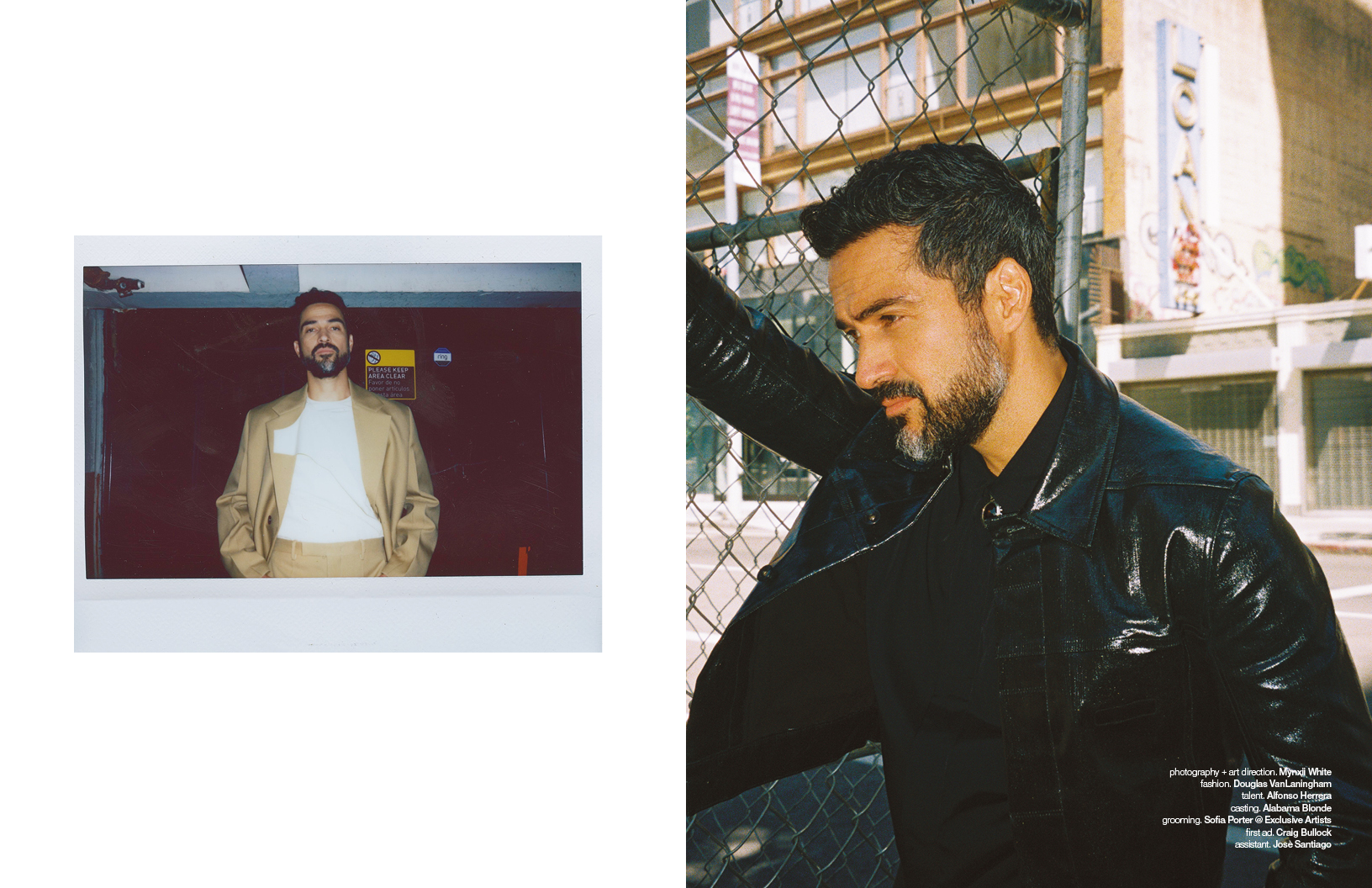
coat, shirt + trousers. Jil Sander
jewellery. TTEN
opposite
jacket. Drkshdw
shirt. Bottega Veneta
jewellery. TTEN
Ozark is out now.
photography + art direction. Mynxii White
fashion. Douglas VanLaningham
talent. Alfonso Herrera
casting. Alabama Blonde
grooming. Sophia Porter @ Exclusive Artists
first ad. Craig Bullock
assistant. Josè Santiago
words. Constance Victory


Schön! Magazine is now available in print at Amazon,
as ebook download + on any mobile device


